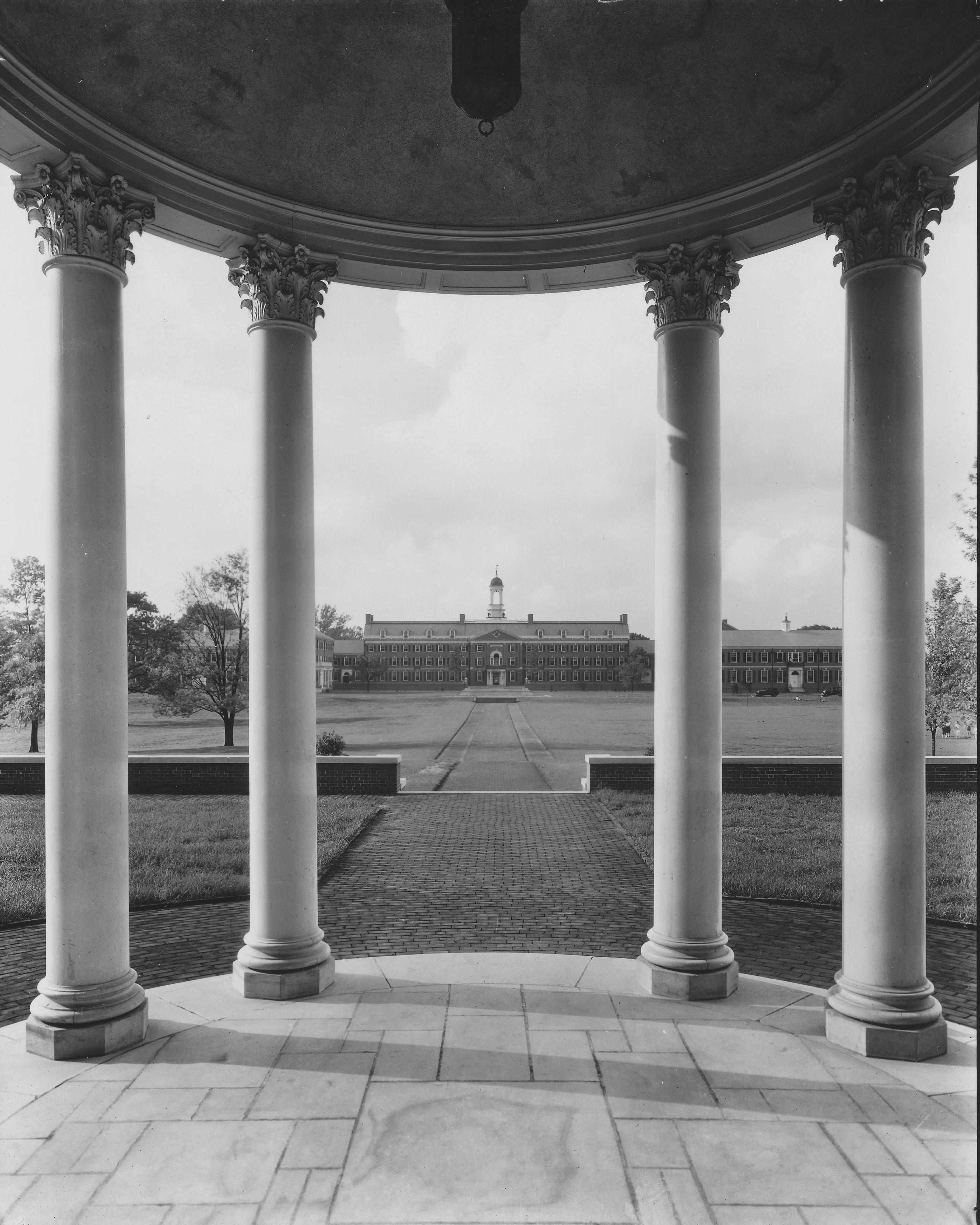
ETERNAL TRUTH IN CHANGING TIMES
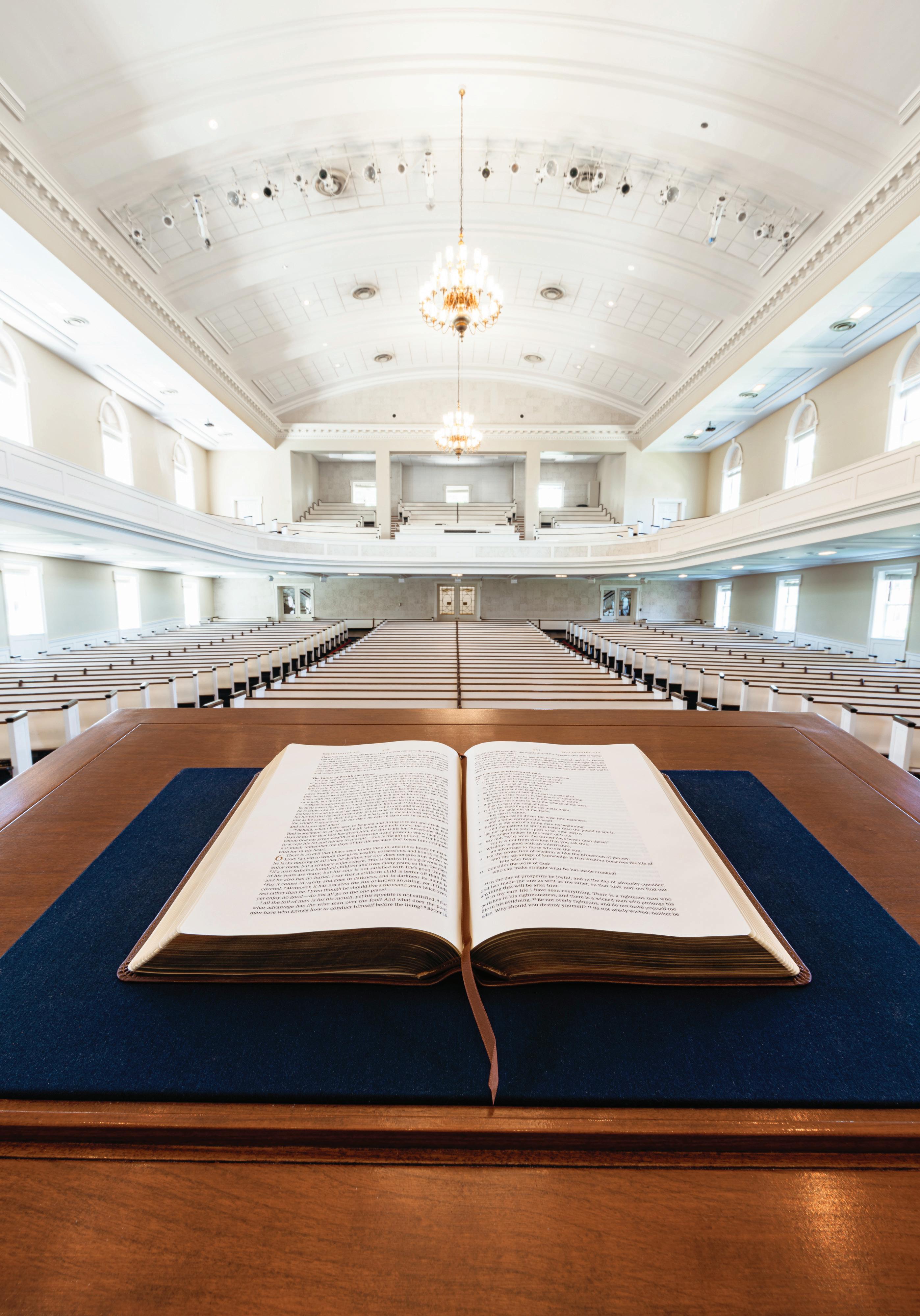
In changing times, we stand on eternal truth. In an age when fundamental truths are increasingly under attack, pastors don’t need less theological training—they need more. That’s why the faculty members of Southern Seminary are committed to teaching biblical truth that equips the called for faithful ministry.
Onward
The experience of commencement at Southern Seminary and Boyce College is always glorious, but this year’s commencements were a stunning display of God’s promise. In a single day, we graduated almost 700 students in two great outdoor ceremonies that drew thousands of family members and friends onto the seminary lawn. God gave us a spectacular day and the theme was unrestrained joy. We saw all these graduates, arrayed in their regalia, ready to go out into the pulpits, into the mission fields, into the work of the Lord.
As our seminary hymn declares, they are “soldiers of Christ, in truth arrayed.” They join the long line of faithfulness that came before them.
A day like that means more than usual for Southern Seminary, maybe more than ever. After more than a year of determined struggle, by God’s grace we came through the international crisis, had a full program of on-campus classes and did what Southern Seminary and Boyce College exist to do—raise up the next generation of Christian preachers, pastors, leaders, and servants who follow the call of Christ to assignments all over the globe.
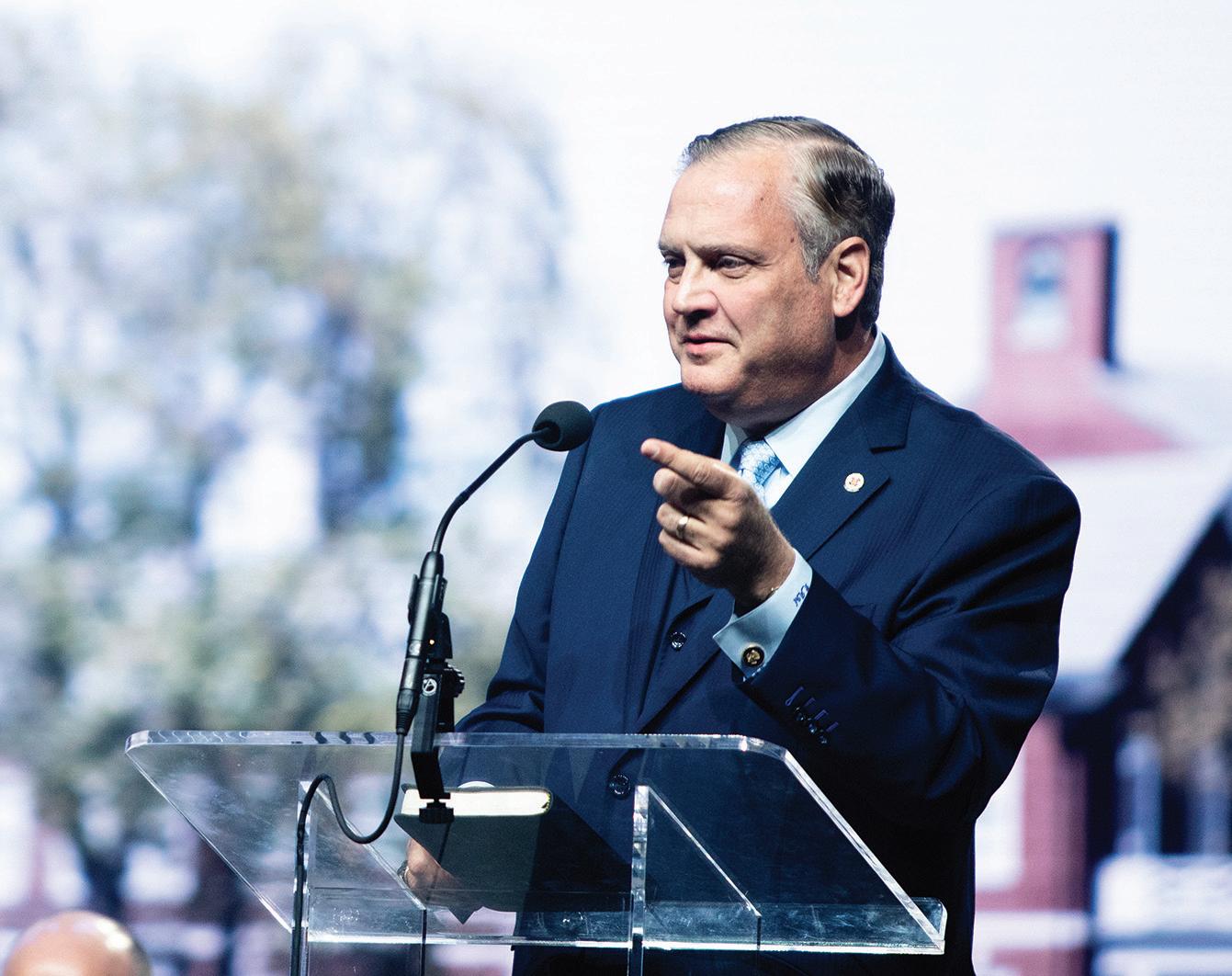
How was this possible? God did it, of course. How can we ever express adequate gratitude to God for his grace and mercy and provision in the past year? God did it through his people. Southern Baptists gave faithfully through the Cooperative Program. Friends of this sacred school gave us the support we needed to see this task done. Students came from all over the world to learn the truths of God’s Word. Faculty members were determined to teach, and bravely they did. Key leaders on this campus just got the job done, day after day. So, what now? We stay at the task, with a commitment deeper than ever, hearts even more full of joy, and a world ever greater in need. Soon, we will welcome hundreds of new students to the campus and to the Southern Seminary and Boyce College family. If you want to be encouraged, just come to the campus and walk on the seminary lawn and see the students and their families and share the joy. Just talk to the students. You will meet some of the most dedicated young people you can imagine, drawn from all across the United States and from more than 70 nations of the world. You will see teenagers just begin -
ning their college adventure and young seminary couples pushing strollers. You will see the future of Christian ministry and service right before your eyes. You will see the promise of God.
Everything we are, everything we do, everything we teach, is based upon the knowledge that God’s Word is truth – inerrant, inspired, infallible, totally true and trustworthy. The theme of this issue of Southern Seminary Magazine is truthtruth unchanged and unchanging.
Where do we go from here? Onward. Onward, then, ye people, join our happy throng, Blend with ours your voices, in the triumph song; Glory, laud, and honor, unto Christ the King; This through countless ages men and angels sing.
SBTS.EDU 1 5 SOUTHERN SEMINARY SPRING 2021
FROM THE PRESIDENT
@ALBERTMOHLER ALBERTMOHLER.COM
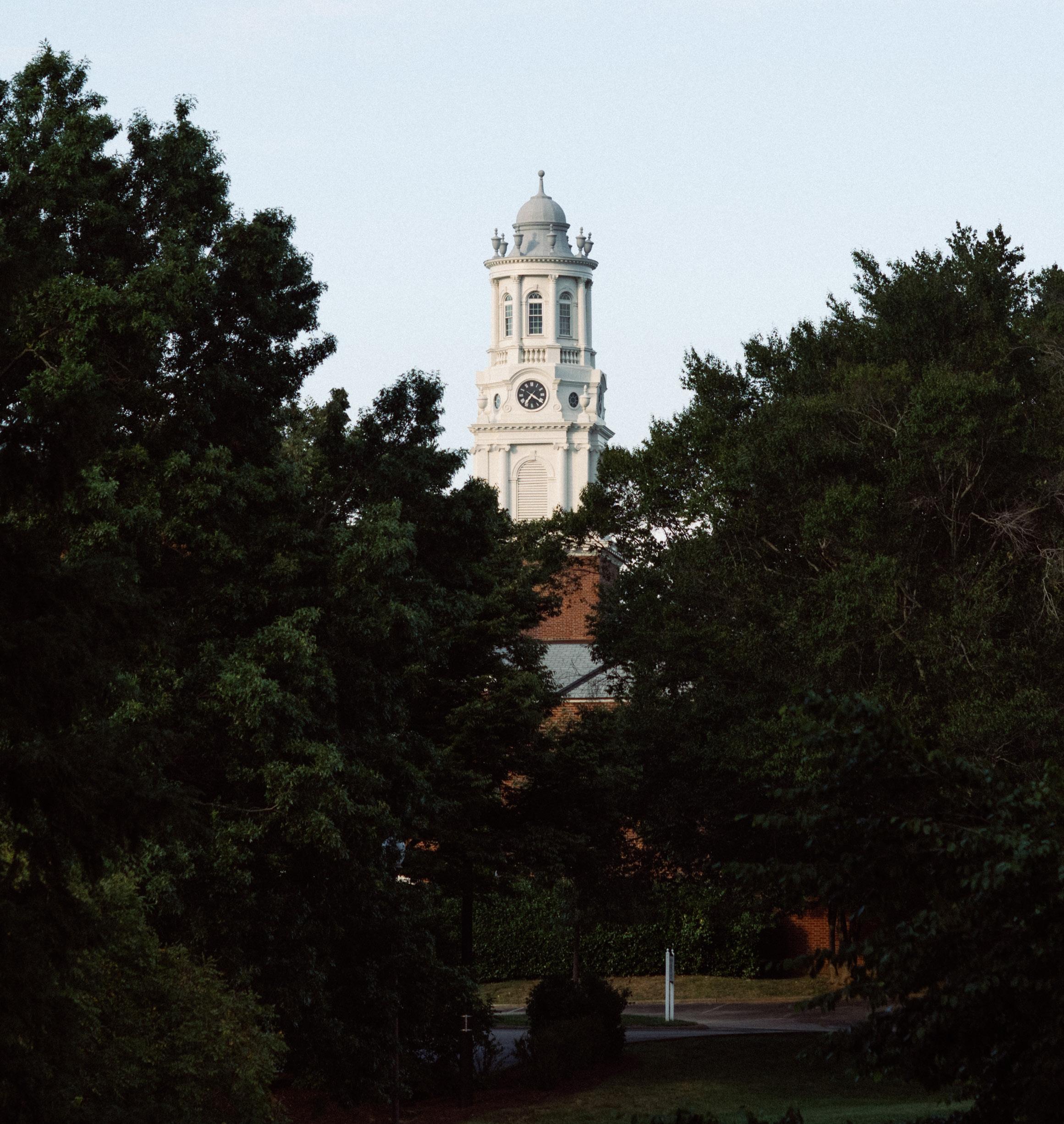
I'VE LOST MY HEBREW... NOW WHAT!
THAT THE BIBLE
JARED KENNEDY

SBTS.EDU 3 2 SOUTHERN SEMINARY SPRING 2021 4 10 16 A SUDDEN, WIDESPREAD CRISIS THEOLOGICAL EDUCATION MADE ACCESSIBLE RELIGIOUS LIBERTY MADE ME BAPTIST! SBTS not only coped with the pandemic, but thrived financially and numerically. Seminary officials quickly put together a plan that steadied the school for the duration. TRAVIS HEARNE Distance students can now get degrees online in seven different areas from biblical counseling to worship. JEFF ROBINSON AND TRAVIS HEARNE If one doesn't possess the freedom to act out one's most primary beliefs, one is not free in even the most basic sense of the word. ANDREW T. WALKER TABLE OF CONTENTS 34 39
DISCOVERING
IS ENOUGH
student works hard to learn the biblical languages in seminary then begins to forget them out in the ministry. How should he retain such useful knowledge? FORREST STRICKLAND
questions made her search for answers. Seminary taught her that God’s Word is able to provide them.
A
Hard
SPRING 2021. Vol. 89, No. 1. Copyright © 2021 The Southern Baptist Theological Seminary Southern Seminary Magazine Staff: Vice President of Institutional Advancement: Edward A. Heinze Director of Communications: Jeff Robinson Creative Director: Stuart Hunt Production Manager: Evan Sams Managing Editor: Jared Kennedy Feature Illustrations: John Zurowski Cover and Graphic Design: John Zurowski, Benjamin Aho Photographers: David Ward, Stuart Hunt, Sydney Zurowski Contributing Writers: R. Albert Mohler, Jr., Jeff Robinson, Andrew T. Walker, Travis Hearne, Forrest Strickland, Jared Kennedy Southern Seminary Magazine is published biannually by The Southern Baptist Theological Seminary, 2825 Lexington Road, Louisville, KY 40280. The magazine is distributed digitally at equip.sbts.edu/magazine. If you would like to request a hard copy, please reach out by emailing communications@sbts.edu. MAIL: The Southern Baptist Theological Seminary, 2825 Lexington Road, Louisville, KY 40280 ONLINE: www.sbts.edu EMAIL: communications@sbts.edu CALL: (800) 626-5525, ext. 4000 1 From the President: Onward 14 Remembering Nick Challies. 19 Peter Gentry Retiring After 22 Years of Faithful Service 20 An Academic Center With a Missionary Heart 22 Deep Personal Convictions About Corporate Worship. 24 Podcasts: Feeds for Your Soul 25 Faculty Profiles: Paul Akin and Tyler Flatt 33 The Glory of God at the Heart of Pauline Theology 36 The Holy Spirit: Cultivating Dependance and Calming Fears 28 STORM ON THE HORIZON President Mohler’s new book takes a deep dive into the profound cultural issues the church is facing in 2021 and beyond. FORREST STRICKLAND TABLE OF CONTENTS @SBTS @TheSBTS @SOUTHERNSEMINARY 6 AN OASIS IN A SECULAR WASTELAND The church must draw from deep springs of truth even as it lives as a moral minority in a hostile world. R. ALBERT MOHLER JR.
Making Theological Education Accessible
SBTS Offering Seven MDiv Degrees Entirely Online
BY JEFF ROBINSON AND TRAVIS HEARNE
The Billy Graham School of Missions, Evangelism and Ministry at The Southern Baptist Theological Seminary is offering MDiv and MA degrees in three key areas that are fully online. SBTS now offers seven MDiv degrees fully online.
Paul Akin, dean of the Graham School, said SBTS wants to enable those already working in ministry to stay in their current position while pursuing a master of divinity.
“We want to make sure we are making theological education as accessible as possible to as many people as possible,” he said.
“There are so many pastors and church leaders that are serving in different kinds of roles that don’t allow them to pick up and move to Louisville to campus, so we’re always thinking through how to deliver high-quality theological education to as many people as possible.”
“We want to make sure we are making theological education as accessible as possible to as many people as possible.”

Rather than being oriented toward generalists in ministry, these online degrees are oriented toward the specialist with a narrower ministry focus:
• WORSHIP LEADERSHIP. This degree is for the worship pastor or music minister who is already deeply rooted in the local church, already working in vocational ministry.
• ISLAMIC STUDIES. This degree is for those who are already serving on the mission field— or who plan to serve in a similar venue in the future—in regions or countries that are heavily populated by adherents to Islam. There are currently 1.8 billion people worldwide who adhere to Islam, so this degree is especially vital for missions and evangelism. This program includes two classes in Arabic. Most classes in this program are taught by Ayman Ibrahim, a world class scholar in Islamic studies.
• BIBLICAL COUNSELING. This program includes the practicum, which is done through distance learning and not on campus as in the past.
These three degrees are available both as a master of divinity, which entails 88-plus hours of credit, or as a master of arts, which is 54 hours. The new degrees now mean SBTS has seven MDiv degrees that are fully online. The other four online MDiv degrees include biblical and theological studies, christian ministry, great commission studies, and apologetics.
Akin said, “We are increasingly finding people who have already found their dream job in a local church, and they don’t want to leave to go to seminary. They already have the job they would want after seminary, realize they need more training or equipping, but can’t pack up and move their family. These are the online degrees for that person.”
For full information or to apply for any of these seven degrees, please visit www.sbts.edu/online/mdiv/
SBTS.EDU 5 4 SOUTHERN SEMINARY SPRING 2021
FEATURE FEATURE EQUIP.SBTS.EDU
An Oasis of Truth in a Secular Wasteland
BY R. ALBERT MOHLER, JR.
The greatest question of our time," offered historian Will Durant, "is not communism versus individualism, not Europe versus America, not even East versus the West; it is whether men can live without God." That question, it now appears, will be answered in our own time.
For centuries the Christian church has been the center of Western civilization. Western culture, government, law, and society were based on explicitly Christian principles. Concern for
the individual, a commitment to human rights, and respect for the good, the beautiful, and the true—all of these grew out of Christian convictions and the influence of revealed religion. All of these, we now hasten to add, are under serious attack. The very notion of right and wrong is now discarded by large sectors of American society. Where it is not discarded, it is often debased. Taking a page out of Alice in Wonderland modern secularists simply declare wrong, right, and right, wrong.

theologian D.
once described America as a “cut flower civilization.” Our culture, he argued, is cut off from its Christian roots like a flower cut at the stem. Though the flower will hold its beauty for a time, it is destined to wither and die. When Trueblood spoke those words over two decades ago, the flower could still be seen with some color and signs of life. But the
CONTINUED ON PAGE 8
Quaker
Elton Trueblood
FEATURE FEATURE
blossom has long since lost its vitality, and it is time for the fallen petals to be acknowledged.
"When God is dead," argued Dostoyevsky, "anything is permissible." The permissiveness of modern American society can scarcely be exaggerated, but it can be traced directly to the fact that modern men and women act as if God does not exist or is powerless to accomplish his will.
The Christian church now finds itself facing a new reality. The church no longer represents the central core of Western culture. Though outposts of Christian influence remain, these are exceptions rather than the rule. For the most part, the church has been displaced by the reign of secularism.
The daily newspaper brings a constant barrage which confirms the current state of American society. This age is not the first to see unspeakable horror and evil, but it is the first to deny any consistent basis for identifying evil as evil or good as good.
The Church Must Be the Church
The faithful church is, for the most part, tolerated as one voice in the public arena, but only so long as it does not attempt to exercise any credible influence on the state of affairs. Should the church speak forcefully to an issue of public debate, it is castigated as coercive and out of date.
“Deep springs of permanent truth will reveal the church to be a life-giving oasis amidst America's moral desert.”
How does the church think of itself as it faces this new reality? During the 1980s, it was
possible to think in ambitious terms about the church as the vanguard of a moral majority. That confidence has been seriously shaken by the events of the past decade.
Little progress toward the re-establishment of a moral center of gravity can be detected. Instead, the culture has moved swiftly toward a more complete abandonment of all moral conviction. The confessing church must now be willing to be a moral minority, if that is what the times demands. The church has no right to follow the secular siren call toward moral revisionism and politically correct positions on the issues of the day.
Whatever the issue, the church must speak as the church—that is, as the community of fallen but redeemed, who stand under divine authority. The concern of the church is not to know its own mind, but to know and follow the mind of God. The church’s convictions must not emerge from the ashes of our own fallen wisdom, but from the authoritative Word of God which reveals the wisdom of God and His commands.
The church, in short, must hold fast to the unfailing truth of God and his Word.
The Heretical Imperative
Peter Berger, who before his death was one of the most influential sociologists of our day, argued that the “heretical imperative” of the modern era is the imperative to choose. In Berger’s analysis, in the premodern era one did not need to choose one’s beliefs.
Instead, in the West, virtually everyone was born and baptized into the Roman Catholic church. In other words, identity was externally fixed for individuals. In the modern secular world, however, this is no longer the case. Choice is endemic in every area of life — we simply cannot avoid it. As a result, Berger concludes that in the modern age we must take responsibility for our identity. It is no longer given; it is self-determined.
In our culture, people who think themselves autonomous will claim the right to define all meaning for themselves. Any truth claim they reject or resist is simply ruled out of bounds by society at large. We will make our own world of meaning and dare anyone to violate our autonomy.
This is why evangelism is often perceived as insensitive or even threatening in our culture. Evangelism demands that we press the authority of Scripture and the claims of Christ on sinners as we invite them to the free gift of salvation provided through Christ’s atoning work.
Will We Serve Lesser Gods?
The American church is faced with a new situation. This new context is as current as the morning newspaper and as old as those first Christian churches in Corinth, Ephesus, Laodicea, and Rome. Eternity will record whether or not the American church is willing to submit only to the authority of God; or whether the church will forfeit its calling in order to serve lesser gods.
The church must awaken to its status as a moral minority and hold fast to the gospel we have been entrusted to preach. In so doing, the deep springs of permanent truth will reveal the church to be a life-giving oasis amidst America’s moral desert. Given our present predicament, we are headed into a period when the acids of modernity will require the greatest level of conviction and the most stupendous level of clarity—a clarity that we will only have as we attest to the truth of God and his revelation.
In the end, the issue is always truth—truth revealed, truth obeyed, truth received, truth proclaimed. In an age of pervasive uncertainty and unsteadiness, the church must remain committed to God’s truth.
We will be in this battle until the end of time.
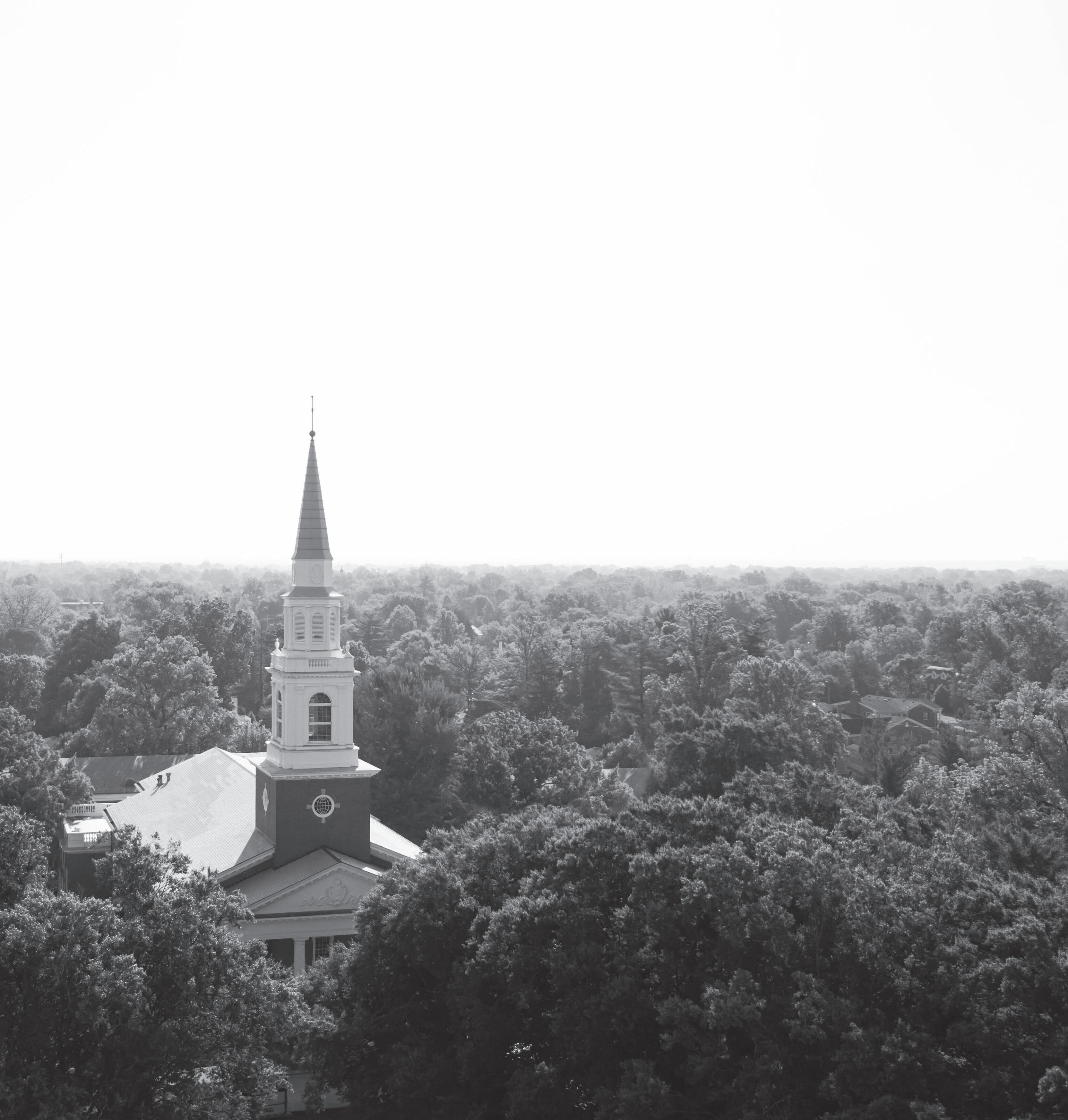
“The confessing church must now be willing to be a moral minority, if that is what the times demand.”
8 SOUTHERN SEMINARY SPRING 2021 FEATURE
Resilient In a Time of Crisis
SBTS Remains Ahead of the Curve and Hits
Record Enrollment During COVID Response
BY TRAVIS HEARNE
Thanks to the commitment of the Southern Seminary community and the Lord’s favor, SBTS and Boyce classrooms remained open through the fall and spring semesters—reaching record enrollment for fall (3,323) winter (1,511) and spring (3,225).
While more than 1,300 American colleges and universities shifted to online or hybrid classrooms in the fall—and with 65 percent of colleges reporting declining enrollment— Southern stayed ahead of COVID-19 and completed a healthy academic year. Higher education faced a crisis. But Southern’s mission to train Christian ministers endured.
Last year SBTS President Albert Mohler said: “We are facing a challenge that is without precedent for anyone living. It is taking a toll on our hearts, even as we understand the very same sense of seriousness and gravity that falls upon our churches, our state conventions, and our common work together. We certainly did not choose to experience this challenge, but the Lord has called us to faithfulness—even in the midst of this crisis—and to serve Southern Baptists with everything we have and everything we are as we look to the future.”
Testing Was Key to Staying Healthy
Brent Small, associate vice president of Human Resources, said testing was central to success. Immediately after students were sent home during the 2020 spring semester, Small and the rest of the staff got to work.
“If we’re going to remain open,” Small said, “we’re going to have to test.”
Due to the fast action of Small and others, Southern acquired a rapid testing machine and put it to good use. Having a testing machine, however, was not enough.
“Once we had the equipment, we had to come up with a way to schedule, track, and administer the testing.” Small said. “We also needed a plan to care for anyone who tested positive.”
Campus Technology and the Hagan Clinic were indispensable to the operation as well. A plan was implemented to randomly test 15 percent of the population per week.
Along with testing, classrooms were fitted with plexiglass shields and desks were spread out for social distancing.
With the students coming soon, all employees were tested with zero positives. As fall approached and the testing began, there were zero reentry cases and zero spread in the dorms. Southern performed more than 4,000 tests with only 32 positives. Classrooms remained open.
On July 31, 2020 shortly before classes were set to resume, Mohler addressed the Southern community: “We have never been more prayerful or careful in preparing for a new academic year.”
To stress the responsibility of individual community members toward one another, SBTS added a line to the school covenant urging adherence to the COVID regulations. Mohler added, “The covenant is a reminder of the fact that we owe one another every effort to protect one another.”
Without the dedication and service to one another, Southern’s fall and spring semesters could have looked different. But love for neighbor and the desire to provide the finest Christian education triumphed.
“Everyone took it seriously.” Small said, “It was a lot of hard work on the clinic, tech, and the students. But it was the Lord’s favor in the end.”
Tuition Reductions and the Path to Record Enrollment
Polling shows 67 percent of colleges and universities reported decreased revenue from tuition and student housing during the pandemic. But Southern preemptively acted by lowering tuition 15 percent and eliminating the $250 online class fee. SBTS and Boyce College went on to reach full enrollment for the fall and spring semesters. The decisions came from a meeting of the SBTS Board of Trustees on April 20, 2020. In a virtual meeting, the board approved a revised budget which cut tuition.
Financial board chairman Rick Staab says the actions were unanimously supported and required “quick and decisive action.”
“Under Dr. Mohler’s leadership the entire administration has taken bold steps to reduce costs, consolidate operations and revise the annual budget.” Staab said “in an effort to position the institution for whatever the near future may demand. The financial board is unanimous in its support of Dr. Mohler
CONTINUED ON PAGE 12
“Higher education faced a crisis. But Southern’s mission to train Christian ministers endured.”

SBTS.EDU 11 10 SOUTHERN SEMINARY SPRING 2021
FEATURE FEATURE
and his staff, and we affirm the appropriateness and effectiveness of the actions taken to position the seminary for the future recovery of normal operations.”
Lowering tuition, while American financial problems persist, is a step towards fulfilling Southern’s mission of providing accessible theological training.
Baptist press reported that SBTS and Boyce College reached a total enrollment of approximately 5,500 students for the 2019-20 academic year. The 2020-21 year numbered 8,059.
Provost Matthew Hall said, "Christian higher education and theological education were already experiencing seismic shifts before the COVID-19 pandemic, but those have only accelerated. In the past year we have seen scores of institutions buckle under the pressures of diminishing enrollment and unsustainable business models.
“That makes what God has done here at Southern Seminary and Boyce College all the more extraordinary. Our great ambition is to see this record number of students ever more faithful to Christ, more confident in the power of his Word, and more committed to the Great Commission."
Mohler added that Southern’s enrollment success is due in part to a commitment to online education. With all of the major degree programs available online— including over 100 courses—Southern was ahead of the game as institutions across America moved to distance learning.
“Now we know why that investment was so important. . The same faculty that draws students to the campus draws students online,” Mohler told Baptist Press.
“Our students are experiencing economic stress and the goal is to pass along all possible savings to the students.”
Lowered tuition and more accessible distance learning are just a couple steps Southern has taken to renew a commitment to theological education during the uncertain times. Continued full enrollment demonstrates the success Southern’s measures have generated.
“Our determination is to act responsibly now, so that Southern Seminary continues to lead the Southern Baptist Convention, fulfilling the mission given to us since 1859 and emerging from this challenge even more faithful than we began,” Mohler said.
But through all the necessary changes, some things remained the same, and SBTS continued to send graduates out into various fields of service.
Graduated More Than 500
In Southern’s 227th commencement in May, 232 students received degrees from the seminary and 236 graduated in the fall, both numbers an increase from the previous year.
In words addressed personally to the fall graduates, Mohler pointed them to Luke 2:15–20, which he described as the first preaching of the gospel—a fact that’s often overlooked, but one that well illustrates the God-called steward’s most fundamental mission.
“They made known the saying that had been told them concerning this child, the saying that the angels had given them,” Mohler said.
“We need to do exactly what those shepherds did. That’s really the task of Christian ministry, that’s really the task of Christian proclamation—to make known the saying we have received. It’s not just one saying, it’s not just the angelic declaration of the identity of the baby in the manger, it is beyond that; it is the entirety of all that is revealed in God’s Word.
“You’re going to preach and teach the Word of God. You’re going to share the gospel of Jesus Christ. You’re going to be heralds of the gospel. You’re going to be stewards of the mysteries of Christ. Whatever your ministry, wherever the Lord may take you, you’re basically going to be imitators of these shepherds.”

Touch the Heartbeat of the City
DMIN IN URBAN MINISTRY


Southern Seminary is designed for men and women called to plant and revitalize churches in urban settings anywhere in America and around the world.
Cities need strong churches. City churches need strong leaders. And strong leaders need the DMin in Urban Ministry from Southern Seminary.
Learn more at SBTS.EDU/URBAN.
12
FEATURE
Boyce College Community Remembers
Nick Challies as a Young Man “Living and Breathing for God”
BY JEFF ROBINSON
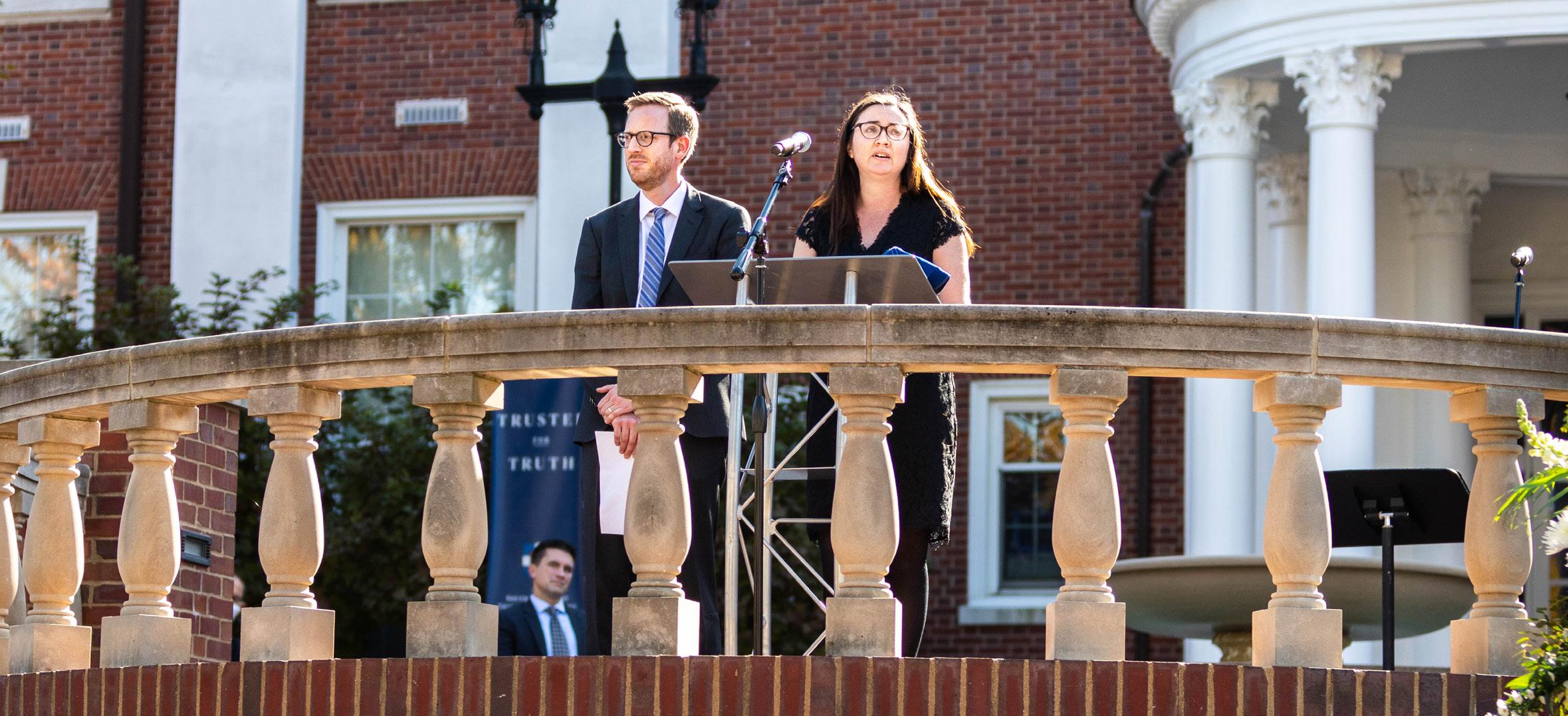
riends, family, and faculty members gathered November 6, 2020, on the lawn at Southern Seminary to remember the life of 20-year-old Nick Challies who died suddenly three days earlier. Nick Challies was the son of noted evangelical blogger and author, Tim Challies. Challies, a Boyce College junior and Toronto, Canada, native, collapsed suddenly while playing a game with his sister, fiancée, and other students at a park near Southern Seminary’s campus. Efforts by emergency personnel to revive him were unsuccessful.
Testimony after testimony described Nick Challies as a young man who worked tirelessly to build strong relationships, prioritized others, and lived every moment all
out for the glory of his Savior. Nick grew up in church and was saved at age 13. He came to Boyce College and Southern Seminary in 2018 after sensing a divine call to pastoral ministry.
“He came home after his first semester here and he was a different person,” said Michaela Challies, Nick’s sister. “He was a person who was living and breathing for God I know that I’ll think about the things he never got to do, but then I’ll think about what he’s doing right now, what he’s wanted to do since he was 13 years old—he’s living with the Lord.”
While at the seminary, Nick met his fiancée, Ryn Conley, and his sister, Abigail, joined him this year as a freshman student at Boyce. He had made numerous friends
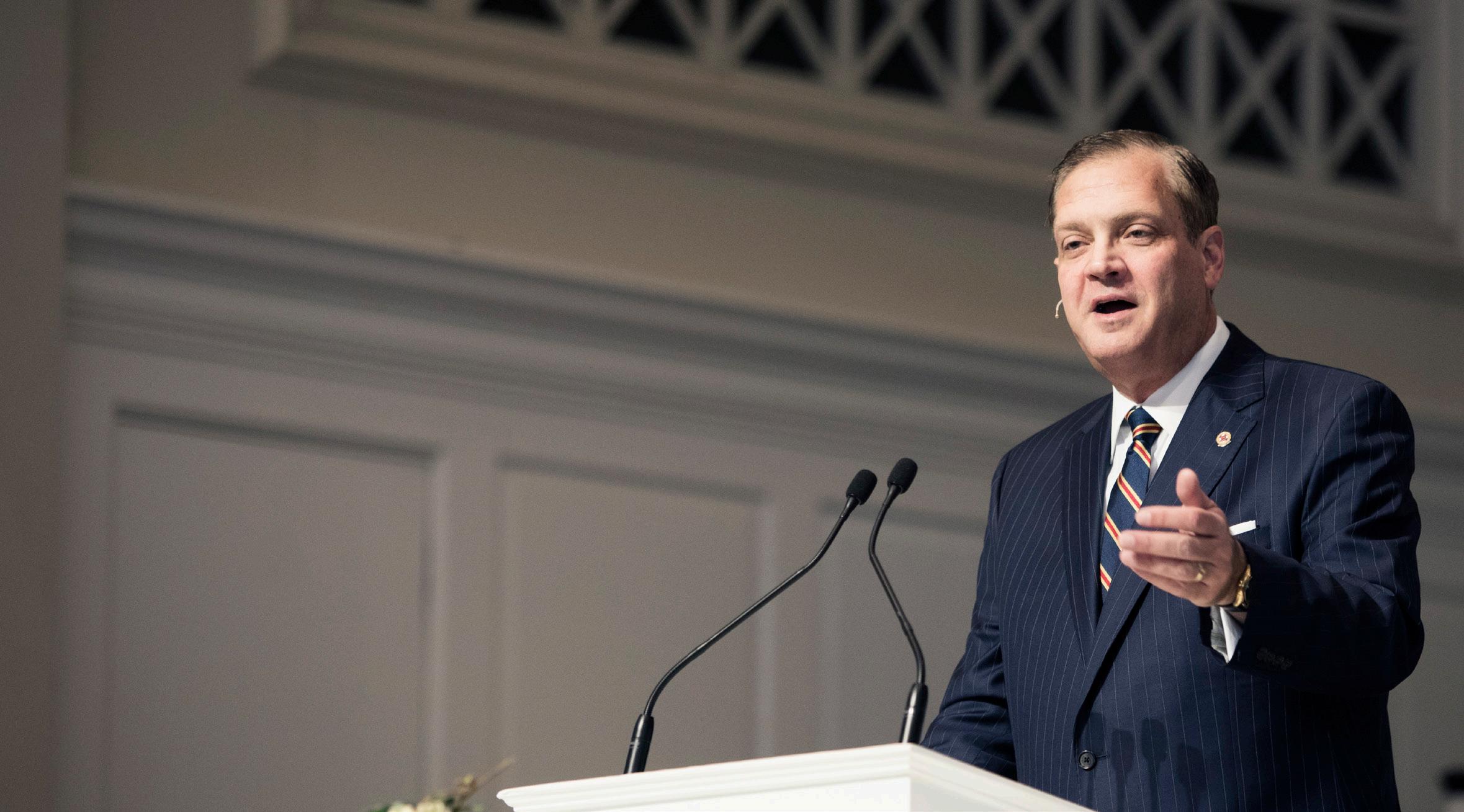
Mohler Elected President of the Evangelical Theological Society
BY JEFF ROBINSON
and had become a leader among students.
“All the pieces were falling into place that would position Nick for many years of faithful ministry,” Mohler said.
“Every single student is a gift,” Mohler said. “Every single student is a stewardship. Every single student is a test: are we really who we say we are? Do we really teach what we say we teach? Do we really serve whom we say we serve? Every student becomes proof of what an institution really is and what it really believes, who it really serves.
In the brief time in which he was with us, Nick Challies affirmed that we are who we say we are and we’re the kind of school that would draw the kind of student that Nick Challies was.”
outhern Seminary President Albert Mohler was elected president of the Evangelical Theological Society (ETS) in November during the organization’s 72nd annual meeting. Due to the pandemic, the meeting of evangelical scholars met virtually. The meeting was originally scheduled to meet in Providence, Rhode Island.
Previously, Mohler had served as vice president of ETS, having been elected to that office during the 2018 annual meeting in Denver, Colorado.
“I am deeply honored to serve as president of the Evangelical Theological Society,” Mohler said. “As a young evangelical, I came to respect and admire this society for its identity as a society of evangelical theologians that would demonstrate the highest quality of theological and biblical scholarship.
“Formed by men of the stature of Carl F. H. Henry and others, this has been the central point of scholarly conversation for evangelicals in the United States for well over half a century. I’ve been pleased to serve as an officer of the society and I’m now very honored to be its president.”
“It is vital that ETS continue to promote scholarship built upon the inerrancy of Scripture and a commitment to biblical orthodoxy.”
Mohler is the third member of the Southern Seminary faculty to serve as ETS president in the past 11 years. Bruce Ware, T. Rupert and Lucille Coleman Professor of Christian Theology, served in that role in 2009 and Tom Schreiner, James Buchanan Harrison Professor of New Testament, was elected in 2014. Gregg Allison, professor of christian theology, is the current secretary of ETS.
“Southern Seminary has had a deep and abiding commitment to ETS and leadership roles in the society as seen by the fact that several of our faculty members have also served as president and each annual meeting sees dozens of our faculty and students presenting important papers defining and defending conservative evangelical scholarship,” Mohler said.
“Serving in ETS leadership is an important stewardship because of the way the society helps frame the conversation among conservative evangelicals. It is vital that ETS continue to promote scholarship built upon the inerrancy of Scripture and a commitment to biblical orthodoxy.”
SBTS.EDU 15 14 SOUTHERN SEMINARY SPRING 2021
F
NEWS NEWS NEWS.SBTS.EDU
S
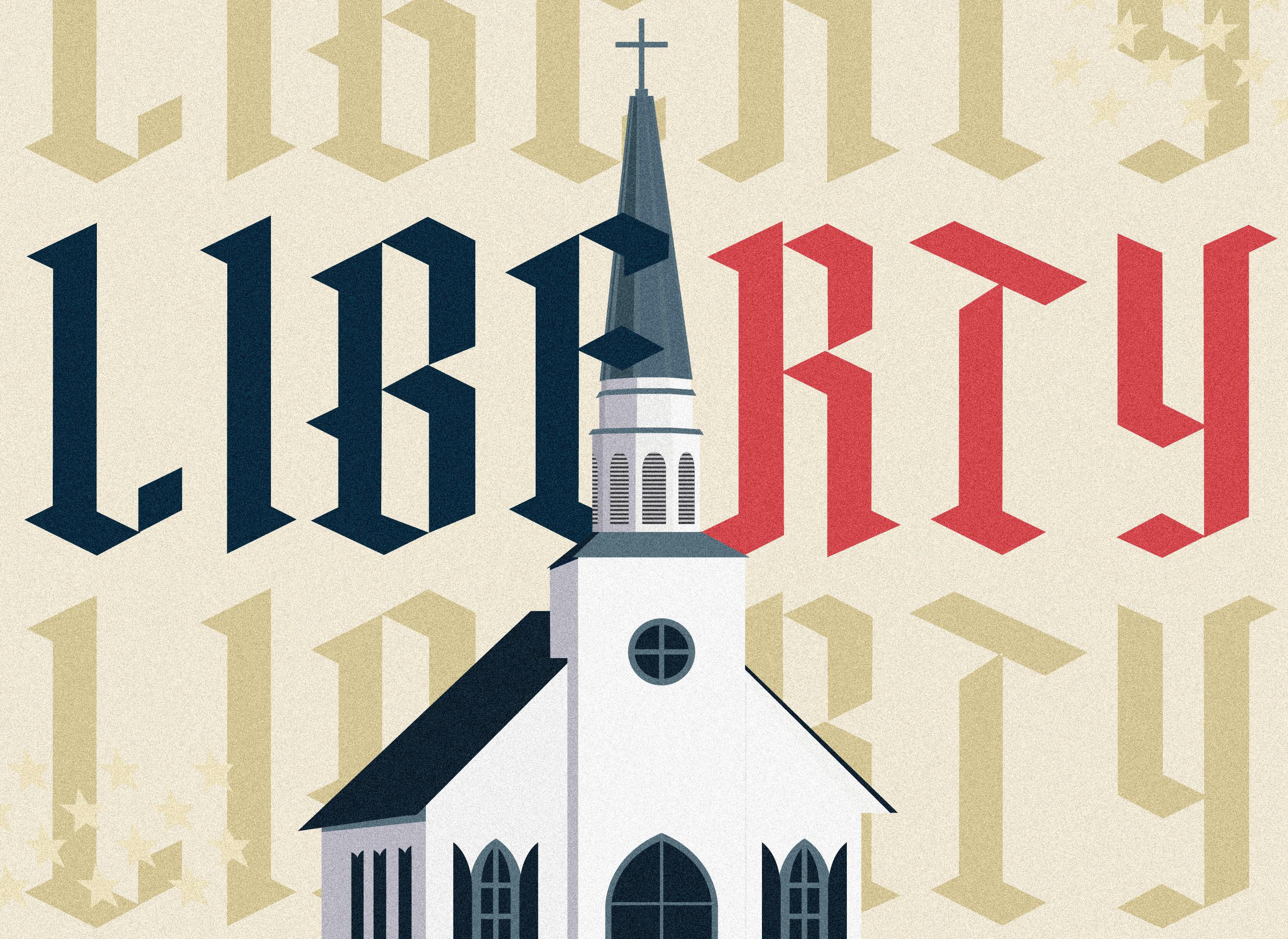
Religious Liberty Made Me a Baptist
BY ANDREW T. WALKER
Iam a little embarrassed to admit this considering I am a professor at a Baptist seminary, but I came to be a passionate Baptist not because I thought baptism by immersion was the most compelling foundation but because Baptist ecclesiology was the natural outcome of what I understood to be the correct theory and practice of religious liberty. That may sound confusing, so let me unpack it.
I grew up in central Illinois going to a Southern Baptist church. If you grew up outside the geographic South, you may have attended a Southern Baptist church without any real sense of it feeling explicitly Baptist. That is because in the North, at least in my experience, we did not understand ourselves as Baptist as much as just Bible-believing Christians. I remember going to the church we went to because, well, they believed the Bible without qualifying it a thousand times over with nuance and deference to our cultured despisers. In other words, they were not theological moderates or liberals. If you would have asked me as a teen if I were a Baptist, I would have answered yes, but only because I understood that I was not Catholic.
Feeling a call to ministry, I went to a Baptist college in southwest Missouri (Southwest Baptist University). Upon graduation, I went to the seminary where I now teach, The Southern Baptist Theological Seminary. At both institutions, I took Baptist history classes and became aware of our history and our theological distinctives, which I appreciated at the time but still did not feel overly zealous about.
Coming of Age
This was not the fault of the professors. In fact, looking back, I recall that my two Baptist history classes were well taught, and the professors were passionate about their subject. Perhaps owing to my general immaturity, ideas like regenerate church membership, believer’s baptism, baptism by immersion, congregational authority, local church autonomy, and religious liberty did not really animate me. That does not mean I disagreed with them; I agreed with them because they seemed biblical. But ecclesiology was not front and center in my earlier theological angst. Questions about Calvinism, inerrancy, and the emergent church were front and center.
It was not until I “came of age” that my first
jobs, incidentally, led me in a more fervently Baptist direction. My first jobs out of seminary were for think tank and advocacy organizations that focused on social conservative causes like the sanctity of life, marriage, and, well, religious liberty. Of course, I had heard of the issue, but at the time, I did not understand its urgency. What is now a token issue of concern for Christians was not so a decade ago. In 2008 to 2010, there was a different cultural climate. Many of the religious-liberty challenges we are encountering now were predicted, at the time, by documents like the Manhattan Declaration. This joint document of Cath-
“If one does not possess the freedom to act on one’s most primary beliefs, one is not free in even the most basic sense of the word.”
olic and Protestant luminaries declared in somber tones that were the government to continue its leftward lurch, a reassertion of religious-liberty rights would be necessary, as would the possibility of civil disobedience. I knew I was treading in deep, turbulent waters. I recall that as I was getting my feet beneath me careerwise, I was having to play catch-up on an issue that I was told was fundamental but was now threatened.
So I got to work in both Kentucky’s capital and our nation’s capital on, among other things, religious liberty. I was largely unfamiliar with it, aside from what little I had learned in my Baptist history classes. It certainly was not, at the time, the top-tier pillar or foundation to my public theology as it is now. I argued for it because, well, my job required me to.
My work required me to read on the subject, and that is what I did. The heavy reading load in religious-liberty theory did not initially convince me of religious liberty’s importance as much as my immersion into the advocacy world of social conservatism, which
CONTINUED ON PAGE 18
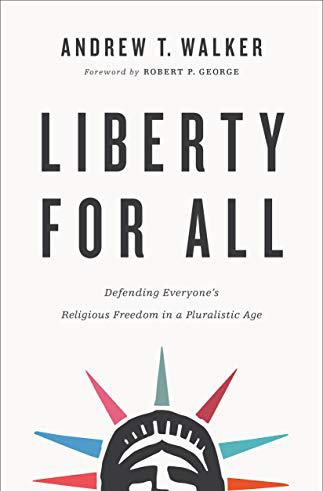
for All: Defending
In this profoundly timely work, Walker argues for a robust Christian ethic of religious liberty that helps the church defend religious freedom for everyone in a pluralistic society. "Whether explicitly religious or not," says Walker, "every person is striving to make sense of his or her life. The Christian foundations of religious freedom provide a framework for how Christians can navigate deep religious differences in a secular age. As we practice religious liberty for our neighbors, we can find civility and commonality amid disagreement, further the church's engagement in the public square, and become the strongest defenders of religious liberty for all." The book begins with a foreword by noted Princeton scholar Robert P. George.
SBTS.EDU SOUTHERN SEMINARY SPRING 2021 17 16
Liberty
Everyone’s Religious Freedom in a Pluralistic Age
Andrew T. Walker (Brazos Press 2021, $39.99)
FEATURE FEATURE
necessarily and rightly treated religious liberty as a lifeblood issue. Because I was enamored of the intersection of first principles, theology, and political philosophy, religious liberty afforded me the opportunity to merge topics I was already passionate about but on which my inchoate understanding still needed tuning.
Limited or Coercive
As I would learn, the posture a state takes toward religion is one of the most decisive indicators of whether it will be broadly pluralistic and limited or tyrannical and coercive. I would also learn that unless you have the requisite liberties to act on your convictions, you cannot do much of anything, whether worship in your church or advocate in the public square. If one does not possess the freedom to act on one’s most primary beliefs, one is not free in even the most basic sense of the word.
The idea that persons are endowed with self-constituting capacities that endear them to religion made more and more sense. If religion informs morality, then morality in public life hinges on the doctrine of religious liberty. Life, I came to understand, entails various types of liberties (speech, association, religion) in order for it to be authentic, meaningful, and worthwhile. The presence of these liberties determines what type of life someone will have in their community. In short, religious liberty is deeply intertwined with human flourishing and the common good.
All of these questions about religion and society led to a flood of first-principle questions, among them the following:
• How does one understand what truth is?
• How does an individual come to grasp religious claims?
• What posture should the state take toward religion?
• How is one’s quest to understand truth related to their personhood?
• What is the relationship between moral obligation and religious foundation?
• What are one’s obligations to the state? To God?
• What are the jurisdictions and responsibilities of the state?
• What are the jurisdictions and responsibilities of the church?
• Who gets to decide who is right and wrong about such matters as religion and morality?
• What is the relationship between religious liberty and other liberties?
Baptist's and Freedom
When I began to answer these questions, I was led to a distinctly Baptist ecclesiology. It was in the Baptist tradition, which had helped birth religious liberty in North America through the likes of Roger Williams and John Leland, that I saw the principles of religious liberty most fulsomely applied. How so? Because the questions above are best answered in light of key Baptist ecclesiastical distinctives that focus on the individual and the associations they form in life.
Based on both natural law and overlapping similarities with principles that emerge from Scripture, like widening concentric circles, religious liberty is based on an understanding of (1) individual assent, (2) group association, and (3) institutional distinction. These are reflected in the practices of individual conversion and regenerate church membership, which entail a distinction between membership in the church and membership in society and between the institution of the gathered church and the institution of the state.
I do not believe other ecclesiastical arrangements are hostile to religious liberty. I am thankful for godly Presbyterians, Lutherans, and others who stand for religious liberty. However, a rightly ordered account of religious liberty bears the richest fruit within a Baptist ecclesiology.
Religious liberty implies a recognition that individuals make conscientious decisions to participate in group associations that have different requirements and different callings than the rest of society and the state. In my view, these truths lead one inside the walls of a Baptist church.
Editors’ note: This article is excerpted from Andrew Walker’s new book, Liberty for All: Defending Everyone’s Religious Freedom in a Pluralistic Age Used by permission of Baker Publishing Group, www.bakerpublishinggroup.com

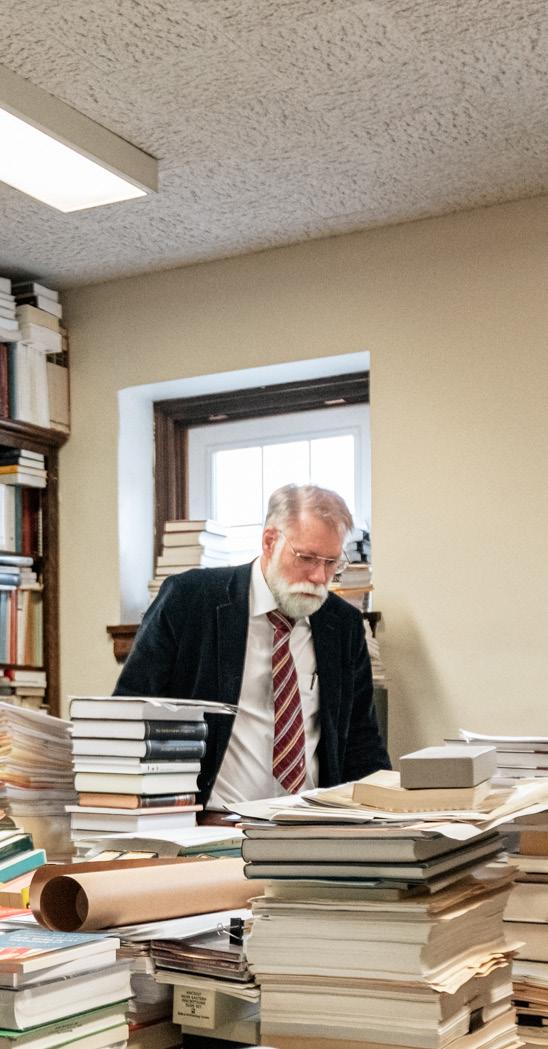
Next fall, for the first time since 1999, masters-level students at Southern Seminary won’t be able to take Peter Gentry’s Hebrew class.
Dr. Gentry is retiring from teaching after 22 years of teaching the Old Testament, Hebrew and Greek grammar and morphology (word forms), various exegesis classes, and more at the seminary.
The bookshelves and stacks of books that populate the floor space in his office like a dense forest bespeak of a life given to research, study, and teaching the biblical languages. A popular question to ask Gentry is “How many languages do you know,” a question he’s never answered.
“Right now, I’m working in a dozen languages,” he said, laughing. “Counting them would be something like David taking the census.”
“If You Have No Morphology, You Have No Theology”
Peter Gentry Retiring After 22 Years of Faithful Service
BY JEFF ROBINSON
He points to the various sections of books on the shelves and floor: there are sections of Hebrew, Aramaic, Phoenician, Akkadian, Syriac, Babylonian, the Targums, the Latin Vulgate, the Dead Sea Scrolls and others. There are also dozens of books on topics ranging from medieval Judaism to geography, plants, and animals of the Ancient Near East, scores of commentaries, lexicons, and an entire bank of works on the church fathers and systematic theology.
Gentry has taught virtually every subject within the realm of biblical and theological studies, including both Hebrew and Greek at the doctoral level. It’s difficult to isolate one favorite class he’s taught.
“I’ve always been a big believer in the importance of the biblical languages,” he said.
“The course that I enjoyed teaching most was probably beginning Hebrew. . It was always my desire to drive students back to the sources—the great cry of the Reformation, ad fontes—giving them skills to access the sources for themselves.”
Gentry joined the SBTS faculty before the 1999 fall semester. In addition to teaching hundreds of students at SBTS, he has written several books, and has perennially worked on scholarly projects in biblical languages, including directing the Hexapla Project—republishing critical editions of early fragments of the Greek Septuagint under the auspices of the International Organization for Septuagint and Cognate Studies. He edited Ecclesiastes for the Göttingen Septuagint Series and is currently working on the edition of Proverbs
and also writing a commentary on Isaiah. During his years as Southern, Gentry wrote or co-wrote several important books, including Kingdom through Covenant: A Biblical-Theological Understanding of the Covenants a work he wrote with close friend and SBTS colleague Stephen J. Wellum. Crossway published an abridgement of that work in 2015, God’s Kingdom through God’s Covenants: A Concise Biblical Theology Prior to his coming to SBTS, Gentry served on the faculty of Toronto Baptist Seminary and Bible College for 15 years and taught at the University of Toronto, Heritage Theological Seminary, and Tyndale Theological Seminary.
A native of Canada, Gentry grew up in both the Philippines and Southern Quebec, where his father pastored churches for nearly four decades. Gentry’s father attended Dallas Theological Seminary and led a Brethren church then was called to a Baptist church. Growing up the son of a pastor shaped Gentry as a churchman which has been central to his life and ministry. Professor Gentry and his family were members of Highview Baptist Church for several years and now belong to Franklin Street Baptist Church where Gentry teaches a Sunday school class he was instrumental in founding. While he is retiring from full-time classroom work at SBTS, Gentry is by no means retiring from ministry. He hopes to continue participating in PhD seminars at SBTS and will also teach classes as a visiting professor at Phoenix Seminary.
SBTS.EDU SOUTHERN SEMINARY SPRING 2021 19 18
FEATURE FACULTY SBTS.EDU/FACULTY
An Academic Center with a Missionary Heart
Jenkins Center Going Strong in Equipping Students and Laypersons to Engage Islam
BY JEFF ROBINSON

Ibrahim said the number of children born into Muslim families in America is growing, but the number of converts to Islam is not. The latest studies show that roughly the same number of Muslims are de-converting from the faith as non-adherents are converting in America. In other places like eastern Iran and Muslim-dominated Algeria, conversions to Christ are on the rise.
He encourages students to read the Quran, but with some guidance from his new book.
“The Quran is a very disconnected text,” he said “It is very hard to follow. I think it’s very valuable for Christians to read the Quran just to know the text that Muslims revere and to value the Bible we have. The more you go through the Quran, the more value you will have for the Bible.
“The Bible was written over millennia, but from Genesis all the way to Revelation, there is unity even though there is diversity in the writing. But the Quran is very different. It is very scattered. It will make you appreciate the Bible even more.”
COVID-19 has done nothing to quarantine the urgency of the ministry of Southern Seminary’s Jenkins Center for the Christian Understanding of Islam.
Ayman S. Ibrahim, PhD, the Bill and Connie Jenkins Chair and associate professor of Islamic studies, serves as director of the Jenkins Center which continues to help equip students and other Christians to understand Islam and to engage Muslims with the good news of Jesus Christ.
“Our goal is to help the church to learn how to connect with Muslims and how to understand different aspects of Islam and how Islam is presented and practiced worldwide in different ways,” Ibrahim said.
“We’ve developed our unique way of ministry here in terms of writing—we write a lot of pieces, including articles, book reviews, blog posts, and we also write books. Every book I publish is supported by the center. Although we’ve had to adjust to not traveling here and abroad, we’ve not backed off the ministry over the past year at all.”
Ibrahim began with the Jenkins Center in July of 2015, a few months after it was established. In that time, he has trained dozens of students and written many articles on Islam and now serves on the committee on Islam for the Evangelical Theological Society (ETS). He gave a plenary address at the ETS annual meeting last fall and last November published an important book on Islam through Baker, A Concise Guide to the Quran: Answering Thirty Critical Questions
The book sold nearly 1,000 copies within the first two months and has opened doors to Ibrahim for interviews about Christianity and Islam with several media outlets. Ibrahim describes the Jenkins Center as “an academic center with a missionary heart.” In addition to academic lectures and events designed to bring experts on Islam to campus, the Jenkins Center exposes students to Islam by traveling to heavily Muslim regions in the U.S. and abroad. Ibrahim looks forward to those trips resuming after COVID-19 is fully under control.
“Our
goal is to help the church to learn how to connect with Muslims and how to understand different aspects of Islam and how Islam is presented and practiced worldwide in different ways.”
If a Christian has a Muslim neighbor and wants to engage him, where is the best place to start? Ibrahim said it’s important not to shrink back from discussing religion with them.
“Befriend them, and before you leave the first meeting ask them a religious question,” he said. “Usually, Americans are reluctant to speak of politics and religion, but Muslims are open to talking about religion immediately. If you don’t talk about religion within two minutes, they will talk about it. They’ll invite you to (embrace) Islam.
“Asking questions is always the greatest philosophy for interacting with Muslims because you don’t appear like you are attacking them. Ask questions that are meaningful like, ‘Are you religious?’ or ‘What do you know about the life of Mohammed?’
Present the image of Jesus in your loving heart and in your loving attitude. Don’t leave the first meeting without planting a seed. Maybe you ask a question that would help you present the gospel at the next meeting or to continue the conversation.”
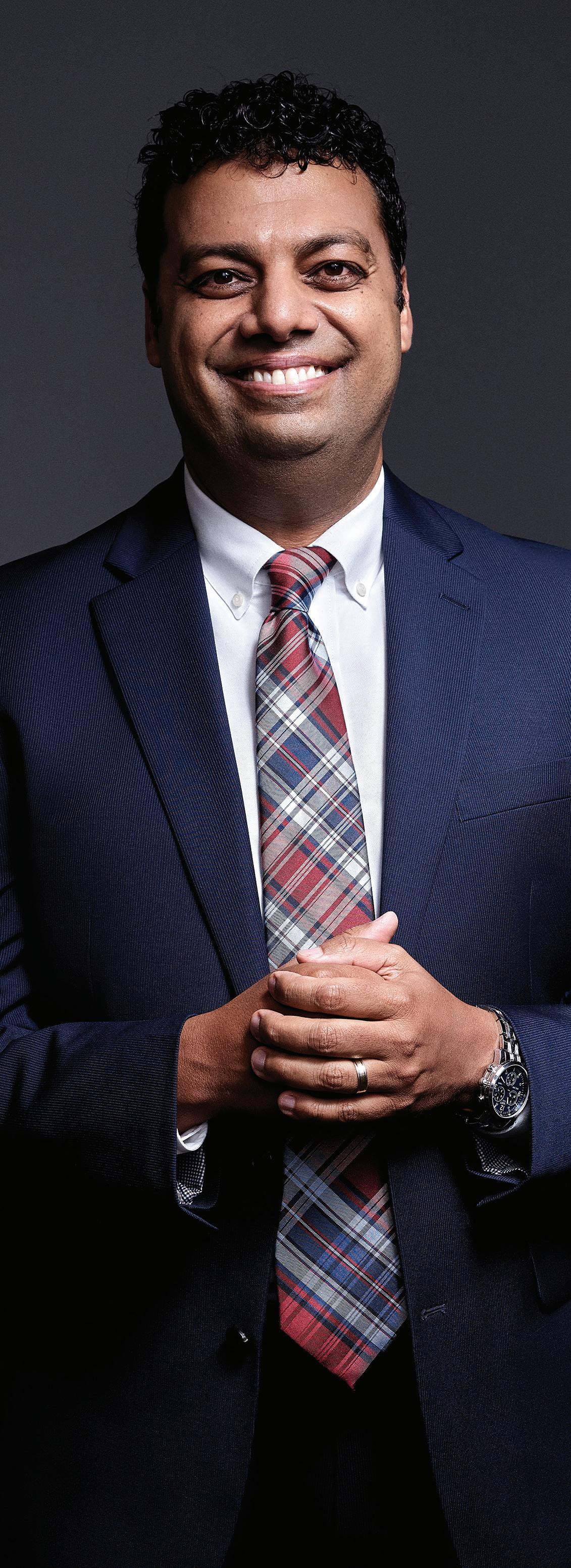
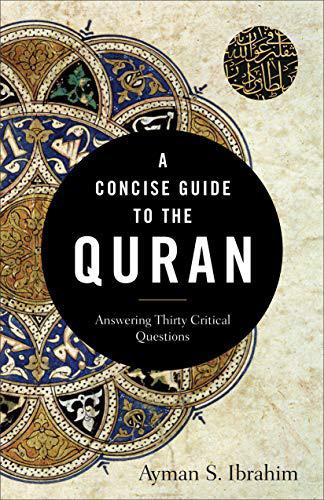
What is so unique about Islam's scripture, the Quran? Who wrote it, and when? Can we trust its statements to be from Muhammad? Why was it written in Arabic? Does it command Muslims to fight Christians? Why is it so important for Christians to know what Muslims believe? Dr. Ibrahim frames this vital discussion by answering 30 questions.
FACULTY SBTS.EDU 21
A Concise Guide to the Quran: Answering Thirty Critical Questions
Ayman S. Ibrahim (Baker 2020, $22.99)
FACULTY
Deep Personal Convictions about Corporate Worship
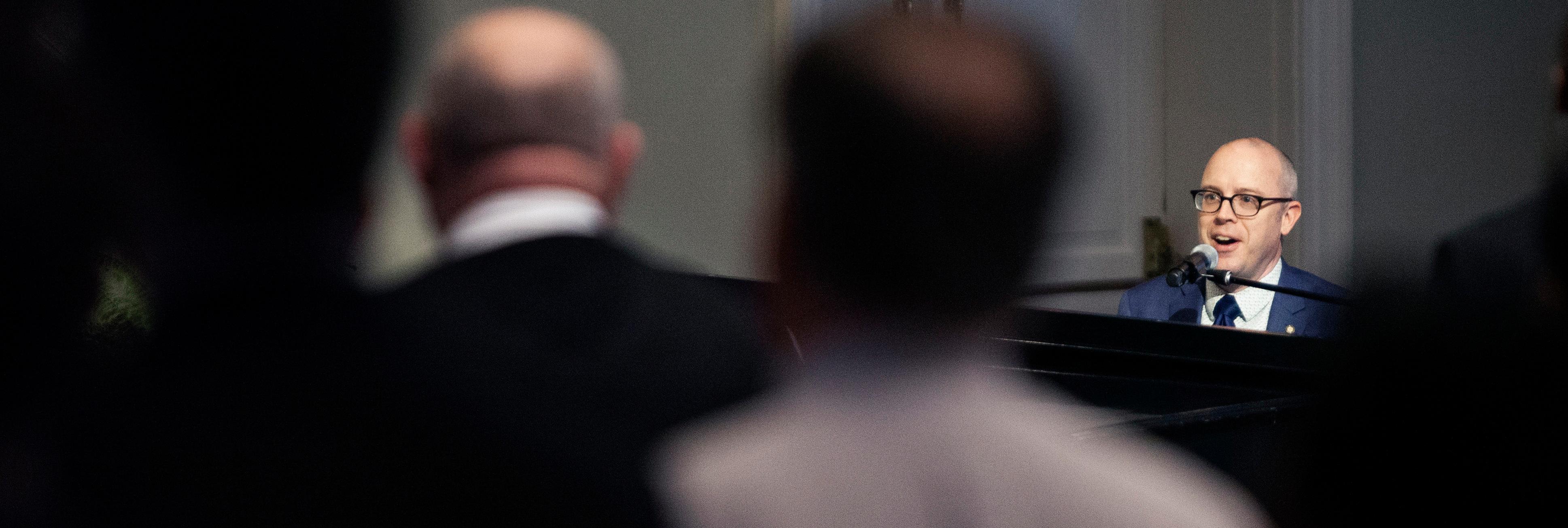 BY JARED KENNEDY
BY JARED KENNEDY
atthew Westerholm has seen it all in church music. And God has used all the encounters of his years in music ministry to shape his God-centered, Christ-exalting views of corporate worship today.
In this interview, Westerholm, discusses how God has grown him as a church leader. Westerholm serves as associate professor of church music and worship and is executive director for the Institute for Biblical Worship at SBTS.
When did you first become interested in music? Who were the strong musical influences in your life early on?
Music has always mystified me. It probably began standing in church on Sunday morning between a dad who sang tenor and a mom who sang alto. I’d listen and wonder, “What is this magic harmony thing that I'm hearing?”
Then, in high school, our youth worship leader discipled me and also dropped me into the deep end with piano. Instead of making chord charts, he would photocopy the overheads and put them in front of me. In rehearsal, he’d call out the chords as he sang “Holy, Holy, Holy” or “We Bow Down” by Twila Paris, and I’d try to write them down furiously. He helped me learn to hear and see music. I also had a great band director in high school. He was Roman Catholic, but he respected my faith. He could see the way Christian faith motivated excellence in music, and he pushed me. He let me take an independent study where he sent me in a room with a keyboard and a sequencer and let me explore. You know, “Here’s a sandbox. Go make some
castles.” Having him encourage my creativity was super important.
When did you sense a call to church music?
I went to Trinity College in Chicago as a music performance major. While I was there, I got hired by some churches in the Chicagoland area to play piano for their new contemporary worship services. I did that initially to help pay my way through school. But in the process, I met worship team members who were more excited about sneaking a Metallica riff into the prelude than they were about the glory of God. I also met worship pastors who had a dysfunctional relationship with their senior pastor. So, during the sermon, the band would go back to the “green room” instead of sitting under the Word. It broke my heart in a profound way. That’s not how it’s supposed to be. I talked to an amazing and wise young lady—who is now my wife—and she had me figured out. She said, “This is what you should do with your life. You should do church music.” The Lord used her and those circumstances to open me up to his call and also to give me deep personal convictions about corporate worship.
In your time as a worship pastor, what are some of the pitfalls you’ve seen churches fall into?
In my early days in ministry, I served in a very attractional, franchise-style, multi-site church. That environment shaped my heart in ways I didn't like. In that context, it was assumed that we should be doing identical services at all of our church’s locations. I was
designing services that could be put in a box and sent anywhere: Just open it up, and do a service that will bless God's people. Designing those services seemed like a personal honor. But, over time, I began to see this was the opposite of what I wanted to do. Through that experience, I discovered I’m a Baptist. I believe in the autonomy of the local church, and the importance of contextualized ministry.
You serve as the executive director of the Institute for Biblical Worship. What are your hopes and dreams for the Institute?
The Institute for Biblical Worship is the outward facing arm of our Department of Biblical Worship. Our plan is for the Institute to be a place where local church leaders go when they’re looking for reviews of new church music or when they’re asking questions about corporate worship. Worship leaders have questions: Is it okay to use music from a different theological tradition? Should we employ more liturgical practices? More revivalist practices? The Institute won’t prescribe what your church should do; we don’t want to commend a particular system of practices or a particular ethos for every service.
As a Baptist, I believe biblical worship is a call to contextualized worship. We obviously must include what the Bible commands for our worship services, and we must do so with great joy. But the Bible also prescribes and describes a great variety in local church practice. I believe it’s the Institute’s job to help local church leaders navigate that variety by providing the best thinking and the best conversation on these subjects.
Seminary Adds Three Professors to Faculty
BY JEFF ROBINSON
In the fall of 2020, President R. Albert Mohler Jr. appointed three new professors to the faculty of The Southern Baptist Theological Seminary.
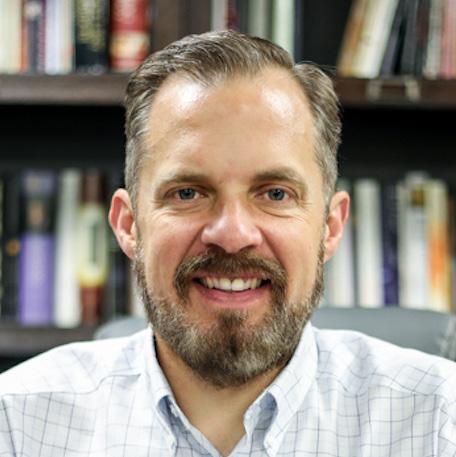
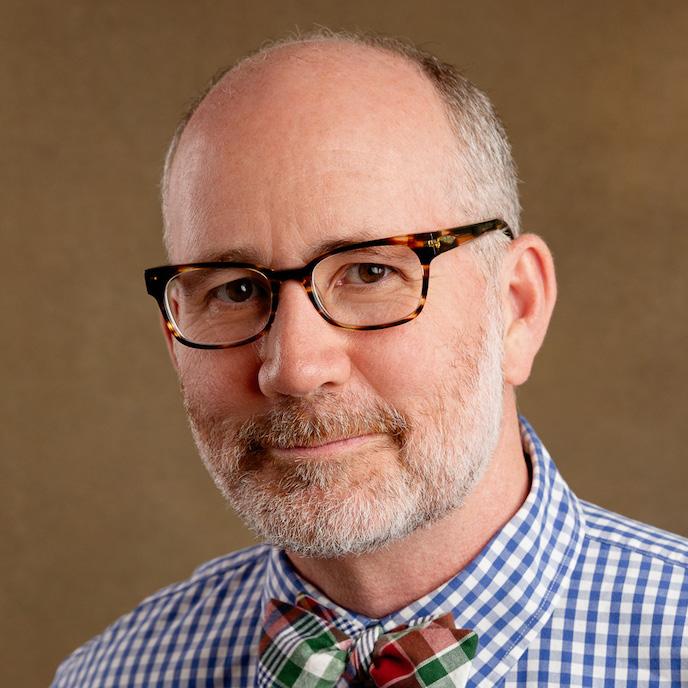
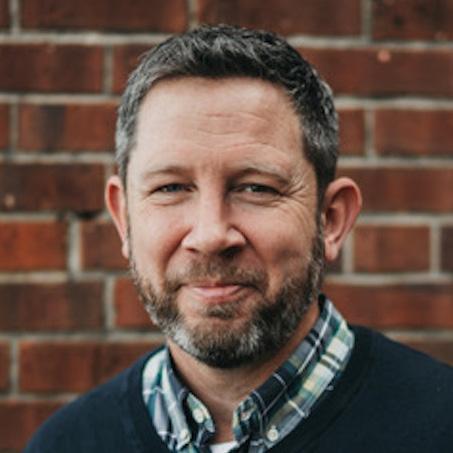
Scott Connell
was appointed as professor of church music and worship. He also serves as pastor of worship and communications at historic First Baptist Church of Jacksonville, Florida. Connell is a face familiar to the Southern Seminary family, having obtained a PhD in christian worship at Southern and serving as associate professor of music and worship leadership for eight years at the seminary. Scott and his wife, Mary, have seven children.
“I am really glad that Scott Connell is rejoining the Southern Seminary music and biblical worship faculty. He is a fine professor, an excellent musician, and a skilled minister and worship leader. His experience in the local church is invaluable, and his heart for ministry and music is infectious,” said Mohler.
Bradley Green
was appointed to serve as professor of philosophy and theology. Green holds an MDiv from Southern Seminary and a PhD from Baylor University and is the author of several books, including Augustine of Hippo: His Life and Impact (Christian Focus, 2020), Covenant and Commandment: Works, Obedience, and Faithfulness in the Christian Life (IVP Academic, 2014).
Green will also continue as professor of theological studies at Union University in Jackson, Tennessee, where he’s served since 1998. Green and his wife, Dianne, helped found Augustine School, a Christian liberal arts school in Jackson. The Greens have three children. Mohler said, “Brad Green combines a first-rate Christian mind with years of proven experience in the classroom. He is a true Christian scholar and professor who sees his teaching role as ministry. His scholarship is a great gift to the church.”
John Henderson
(PhD, University of North Texas) was appointed as associate professor of biblical counseling. He also currently serves as an associate pastor at University Baptist Church in Fayetteville, Arkansas, primarily overseeing the counseling, equipping, and family ministries.
Previously, John served as associate pastor at Del Ray Baptist Church in Alexandria, Virginia as well as a counseling pastor at Denton Bible Church in Denton, Texas. He is a board member of the Biblical Counseling Coalition and also serves on the board of the Association of Biblical Counselors. He is author of Catching Foxes: A Gospel-Guided Journey to Marriage (P&R, 2018), a book for marriage preparation. John and his wife, Ruth, have five children.
FACULTY FACULTY SBTS.EDU SOUTHERN SEMINARY SPRING 2021 23 22
M
An interview with Matthew Westerholm
Feeds for Your Soul
Four podcasts with thousands of listeners originate from SBTS and extend the seminary’s ministry to thousands beyond the seminary—encouraging pastors, missionaries, and church planters, as well as laypeople.
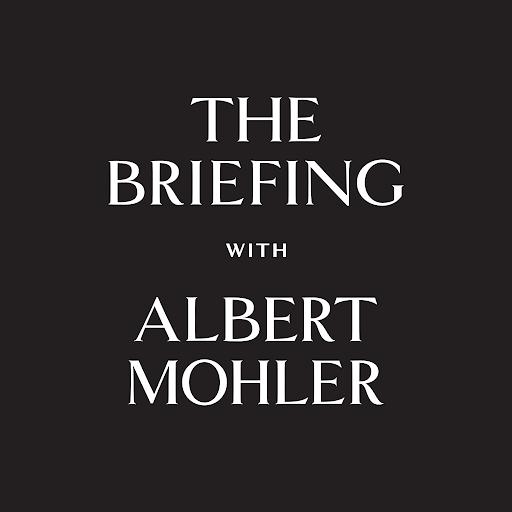
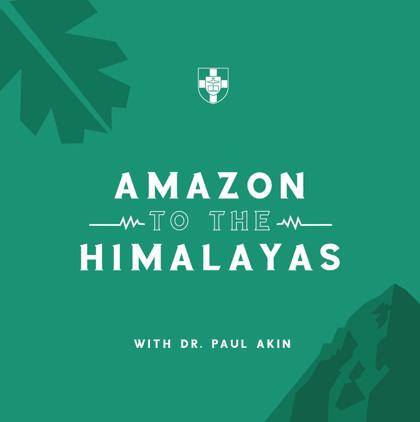
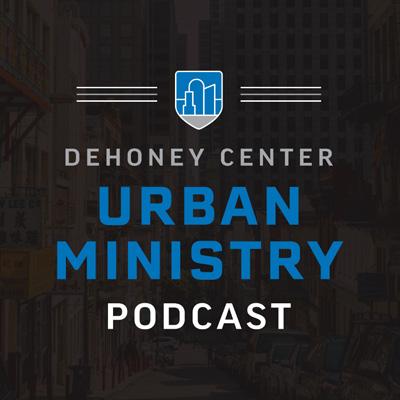

THE BRIEFING
The Briefing is SBTS President Albert Mohler’s daily podcast. Last September, the program celebrated 10 years of analyzing daily events in the news from a Christian perspective.
The Briefing’s audience is significant: at least 80,000 listeners per day and 400,000 downloads per week. The decision to move from a one-hour radio show to a 25-minute podcast was motivated mainly by the medium’s flexibility both for host and listeners. “The Briefing is intended to be where enduring Christian truth and the headlines collide, where biblical truth and matters of cultural urgency intersect,” Mohler said. “And that’s what makes it fun. I get to talk about—and help Christians think about— the most important issues of the day. That keeps me at it.”
AMAZON TO THE HIMALAYAS
The Amazon to Himalayas podcast was launched in October 2020 and produces new episodes on a weekly basis during the fall and spring semesters, taking breaks in winter and summer.
Paul Akin, dean of the Billy Graham School of Evangelism, Missions and Ministry, hosts the program. Each episode features a conversation with a missionary who shares how God is at work in their particular missional context. Amazon to the Himalayas has featured guests from all over the globe including Kenya, Brazil, Middle East, Europe, North America, South America, and all over Asia. “I have heard from many missionaries that they have been encouraged to hear what the Lord is doing in other parts of the world,” Akin said. “They are often isolated and unaware and this provides a way for them to hear encouraging things that are happening in other parts if the world.”
THE URBAN MINISTRY PODCAST
Aimed at encouraging church planters in an urban context, The Urban Ministry Podcast launched in 2019 with two dozen episodes.
Each episode features a minister serving faithfully in an urban context, sometimes internationally, sometimes here in the United States. Timothy Paul Jones, C. Edwin Gheens professor of Christian Ministry and director of the Dehoney Center for Urban Ministry, hosts each episode. “Many listeners are also serving in church revitalization,” Jones said. “I want people to love the locations where God has placed them, whether that’s in the city, in a small town, or in a rural context. I hope that God works through their renewed love of their context to equip listeners to share the gospel more effectively wherever they are.”
PASTOR WELL
Pastor Well is a podcast by a veteran pastor-theologian aimed at pastors at all stages of the ministry. Hershael York, dean of the School of Theology and professor of preaching at SBTS and longtime pastor of the Buck Run Baptist Church in Frankfort, Kentucky, hosts the program.
Pastor Well launched in May of 2019 and recently wrapped up its third season. In each episode, York interviews well-known and lesser-known figures in ministry from across the evangelical world and the Southern Baptist Convention. Recent episodes have featured Steve Gaines, Johnny Hunt, Ray Ortlund, Michael Reeves, and Christopher Ash.
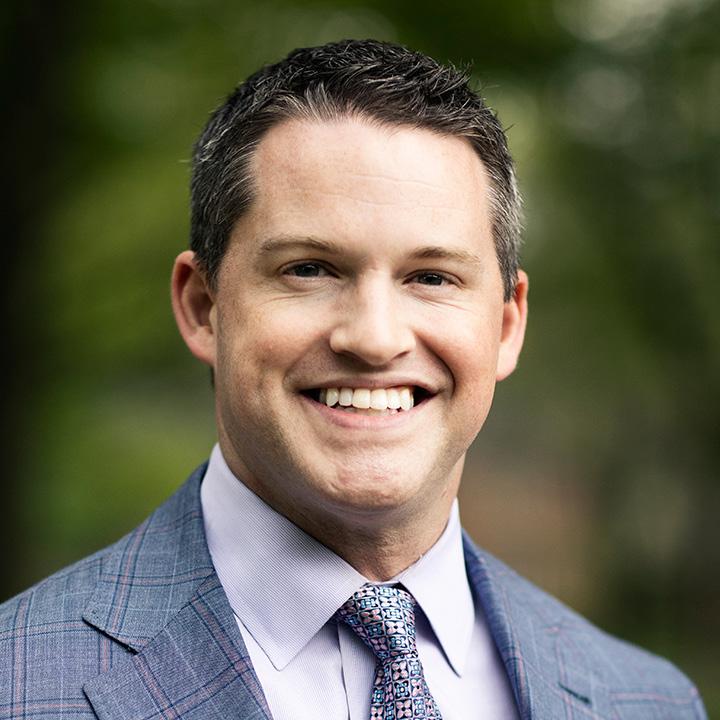
Faculty Profile: Paul Akin
BY JEFF ROBINSON
Coming to Southern Seminary to serve as dean of the Billy Graham School of Missions, Evangelism and Ministry was a homecoming for Paul Akin.
Akin first moved to Louisville at age 12 when his father, Danny Akin, was elected dean of the School of Theology at SBTS, where he remained for eight years.
“I have fond memories of this time and of growing up around SBTS in the Louisville area,” he said. “We were new to Louisville, the Mohler s were so gracious and welcoming to us. Our families would get together and enjoy meals. There may have even been a water balloon fight between the four Akin brothers and Dr. Mohler. Louisville and SBTS have always felt like home, and I’m so grateful to be back.”
Akin’s world was turned upside down during his freshman year in college on a mission trip to Southeast Asia. There, he met a fellow student who had never heard of Jesus Christ. Growing up in America, particularly in the realm of the Southern Baptist Convention, made it difficult to believe there was a person out there who hadn’t heard of Jesus or his death on the cross.
“God used that experience to change the course and trajectory of my life,” Akin said. “Fast-forward a few years and my family
(wife, and six-month-old son) moved to East Africa and later to the Middle East to live and work among Muslim people. God had put a special burden on my heart for Muslims, and we committed to serve for a minimum of two years with the IMB, sharing the gospel and trying to make disciples among Muslims in Africa and the Middle East.
“Following this time living overseas, I spent the next decade of my life training, sending, and serving alongside missionaries all over the world through the local church, the International Mission Board, and now through Southern Seminary. Regardless of my location or vocation, involvement in missions and the Great Commission is central to who I am in Christ.”
In God’s good providence, Akin shares a birthday with one of his missionary heroes, Jim Elliot. Both were born on October 8.
Akin also considers Billy Graham to be one of his heroes, both for the sort of man the late evangelist was and for his love for lost souls.
“It’s almost surreal to be called to serve as dean of the school named for him, the school that’s part of the seminary around which I spent many of my formative years.
“I am extremely humbled and excited to be serving as dean of the Billy Graham School,”
Akin said. “I have always considered Dr. Graham a hero and example of what it means to be a Christian man. His passion for personal evangelism and the Great Commission is what I have always admired most. To be entrusted to carry on that legacy here at SBTS and to champion the Great Commission from this position is humbling but also very exciting, and I want to serve the Lord faithfully in this role.”
Akin has been dean a relatively short time, but he has already been helped as a young leader by Southern’s renowned veteran faculty.
“Our faculty have served all over the globe as pastors, missionaries, and church leaders,” he said. “God is bringing students to us from all over the world. By God’s grace, our reach, focus, and footprint is truly global in scope.
“As a result, this school is uniquely poised and positioned to influence the cause of the Great Commission for decades to come. I want to lead this school to love the Word of God, cherish the gospel of God, prioritize lost people, and to actively engage in God’s mission of redemption here and around the world. It is this task and endeavor that I give my time, energy, and resources to accomplish, with the Lord’s help.”
SBTS.EDU SOUTHERN SEMINARY SPRING 2021 25 24
FACULTY FACULTY

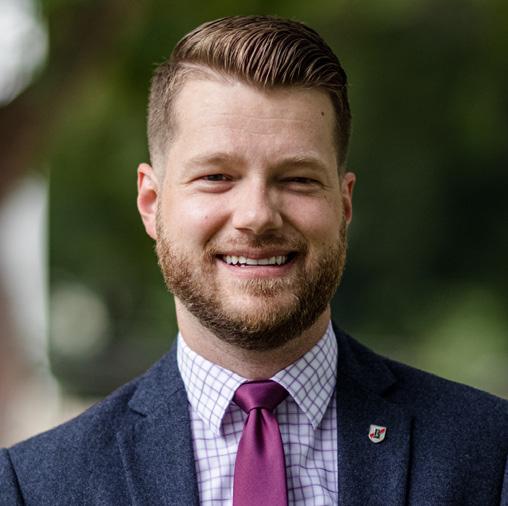
Faculty Profile: Tyler Flatt
BY JEFF ROBINSON
The only thing Tyler Flatt enjoys more than teaching is learning.
Flatt, who has served as assistant professor of humanities at Boyce College since late 2016, and program coordinator for Humanities since 2019, looks forward to the eschaton because there he’ll have unlimited time to learn.
“I love to learn about the world around me, and I'm looking forward to the day in heaven when time will never be short, when I can learn all about the worlds and the universe that God has made,” he said.
“I look forward to taking delight every day in all of the things he's made and the way that he's made them. Learning about the world around me is endlessly rewarding. And in the midst of these difficult times, I have had a little bit more time to do some learning on different subjects, which has been a consolation in strange days.”
Perhaps Flatt's favorite time in world history is the classical period, an epoch that produced some of the most profound literature in human history.
Flatt is a native of Ontario, Canada, and holds a PhD from Harvard University and a MA from the University of Toronto. Flatt’s passion is teaching the classical tradition in general and Great Books I and II in particular. The seeds of his love for the classical period and classical education were sown in an encounter with Greek mythology at a young age.
“I remember as a kid, I had a book of Greek and Roman mythology, and I think there was some Norse mythology in there too. I grew fascinated by those stories, many of which are not necessarily true or good or beautiful, but
they got me interested in how the Greeks and Romans looked at the world, and then I started learning about their history. Then when I was in high school, I started getting into classical literature—at first in English translation.
“From the history I got into the literature and philosophy and once that happened, I just said, ‘I don’t want to always be relying on translations. I would love to encounter these authors in the original.’”
His mother taught chemistry at the University of Waterloo, which is in his hometown. Since it had a strong Classics Department, the choice was simple for undergrad studies and that began the journey that brought him to Boyce today.
Flatt grew up in a Christian home and was converted to Christ at age seven. While in high school, a desire to learn theology began to germinate in his heart and mind. He became absorbed in the Scriptures and began to read authors like John Calvin, Martin Luther, and John Owen.
And through the influence of a family friend who was a professor, Flatt knew what he wanted to spend his life doing.
“For lots of people, it takes them a long time to figure out what they're supposed to do,” he said. “But for me, I'm not a well-rounded person. I'm one of those pointy people where the gifts and opportunities that God has given me are all kind of concentrated in some very specific areas, and so from a young age it was clear to me that I wanted to grow really deeply in knowledge, and I wanted to help other people grow in knowledge too.”
He hopes to see students recover the tra-
dition of developing the Christian mind and using the classics broadly in their ministries. In partnership with Rob Plummer and the Daily Dose Team, he has established the Daily Dose of Latin, available by YouTube subscription, in which he walks viewers through a book of the Vulgate. Together with Melissa Tucker, he’s also helped to develop the Classical Education Minor at Boyce, which aims at equipping teachers with a thorough knowledge of classical pedagogy to serve in the growing number of classical schools.
“I like to ask students who are skeptical of the ‘pagan classics’ a provocative question: ‘I want you to name for me a single major Christian thinker or theologian born before 1950 who was not steeped in the classical tradition,’” he said. “And nobody can because there are none.
“Whether you start at the early end with Tertullian, or Cyprian, or Clement of Alexandria, or even as recently in our own time as C. S. Lewis, all of these great thinkers on whom we rely in the Christian tradition were steeped in classical literature. And that's because they found it extremely useful, not only for understanding the world around them, but also for becoming better and more sensitive readers of Scripture.
“Regardless of what ministry our students at Boyce may be engaged in, a classically-inspired education is going to equip them to communicate persuasively and powerfully. Getting in touch with the literature, philosophy, and history of the classical tradition will endow them with a treasure-house of time-tested wisdom and good sense about the world and about humanity.”
SBTS.EDU SOUTHERN SEMINARY SPRING 2021 27 26
FACULTY
Cultural Shifts, Political Regimes, and the Constant Need for Biblical Teaching
Mohler talks about The Gathering Storm
BY FORREST STRICKLAND
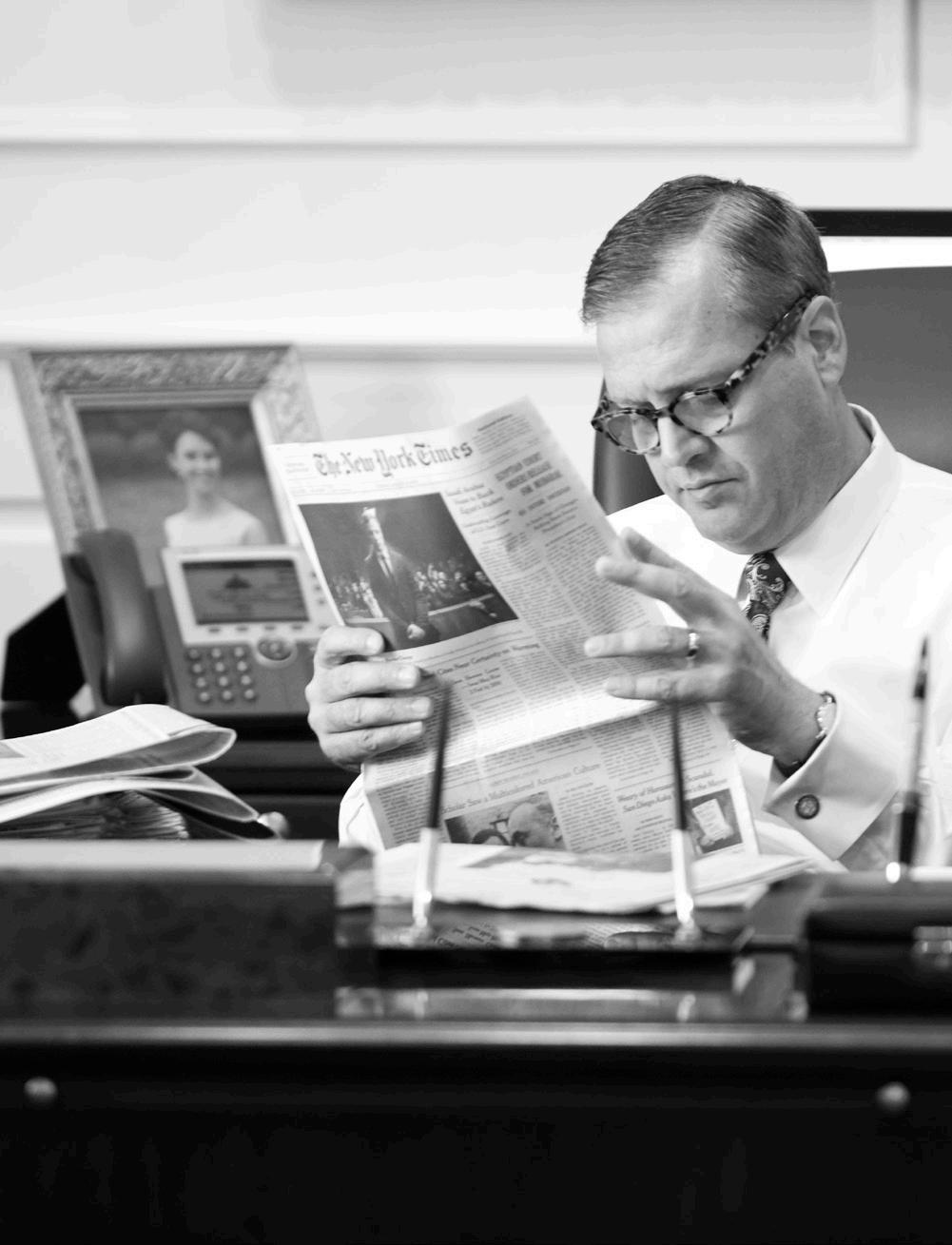
ver the last hundred years, a cultural, moral, and political shift has taken place in Western society that has led to broad devaluing and rejection of Christian truth claims both privately and in the public square. The place of Christian convictions have gradually eroded, and this erosion will have tectonic effects on modern society. Evidence for how this shift has reshaped and will continue to reshape modern society is available for all to see, if people will only look, argues R. Albert Mohler Jr. in his newest work, The Gathering Storm
The Gathering Storm addresses questions like worldview, western civilization, marriage and the family, gender and sexuality, as well as other topics. These are issues you have spoken about publically in some way for over thirty years. Why this book now?
In every generation, Christians have been called upon to understand our responsibility for the particular cultural moment and context within which we find ourselves.
This has been true throughout the history of Christianity. But when we look back at church history, there have been times when there was a particular urgency about asking the question of our responsibility, because the culture had experienced such a massive transformation. It’s not just the transformation of the culture in the big tectonic plates of economics and politics, but also at the
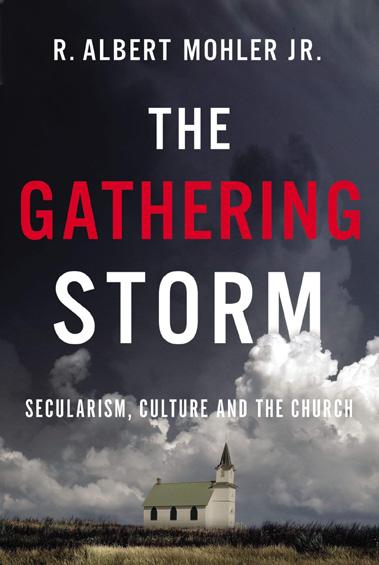
deeper level of morality and even the understanding of reality and the consumption of truth. There are times in which it seems all of these things are coming together, and that's exactly what characterizes our time.
I have self-consciously borrowed the title, The Gathering Storm, from Winston Churchill, who is one of my heroes of history. Churchill largely stood alone during the 1930’s, as he saw the storm of war gathering. Others denied that Churchill had even seen clouds, but history proved him horrifyingly right. When Churchill wrote his history of the second World War, he entitled the first of those six volumes, The Gathering Storm. Like Churchill, Christians need to see and understand the gathering storm in our own day, and then we need to step into the next responsibility, which is thinking seriously and biblically about what the times will require of us.
Secularization has the effect of eroding truth claims over long periods of time—even in the church. What can a Christian do to ensure their own faithfulness and defend against secularization eroding their own convictions?
Our beliefs are contaminated unless we do two things, and these two things are paramount. First, we must turn to the Bible so that the living, breathing, and infallible Word of God will cleanse us of cognitive contamination. We cannot expect that our thinking will be biblical unless we are immersed in the Scriptures, unless our
A storm is coming. Western civilization and the Christian church stand at a moment of great danger. The storm is a battle of ideas that will determine the future of Western civilization and the soul of the Christian church. The forces we must fight are ideologies, policies, and worldviews that are deeply established among intellectual elites, the political class, and our schools. More menacingly, these ideas have also invaded the Christian church. From threats to religious liberty and redefinitions of marriage and family to attacks on the sacredness and dignity of human life, the perils faced by the West and the church are unprecedented. How should Christians respond to this challenge?
thinking is predicated upon the truthfulness of God’s Word. We must hear God speak, obey him, and have our minds filled with the cognition that comes from the Bible. Second, we must be deeply involved in the life of a local church. As it meets together in worship and shares the gift of Christian fellowship together, a local church practices communal cognitive detox. That is part of what we’re doing when we gather for worship. We do renew our minds with the songs we sing. If the songs we sing are robustly biblical, then we are fulfilling what Paul exhorted the Colossians to do: We are encouraging and cognitively correcting one another with psalms, hymns, and spiritual songs. Then, by our prayer, we are cleansing our thinking and beliefs. Of course, the same is true when we sit under the preaching of God’s Word. When we participate in a healthy local church, our minds are transformed by the kind of constructive brotherly and sisterly Christian conversation that can only come in fellowship there. Sometimes we have to say, “What do we exactly mean,” or, “What you said is almost right, but maybe we can learn to put that in a way that's even more biblical.”
In our time—especially in the West—historic Christian convictions are both disapproved of and also increasingly seen as hostile to the status quo. What precursors from history might encourage Christians today?
My ultimate confidence in writing The Gathering Storm is that Jesus Christ is Lord, and thus no storm will mean the end of Christianity, the end of the church, or the end of truth. Nevertheless, a gathering storm can represent a real and an unavoidable challenge for us. Through its twenty centuries of existence the church has had to face all kinds of storms. When you think about our particular cultural moment, we are being told that we are on the wrong side of history, that we hold positions that cause human suffering and unhappiness rather than human flourishing. But we must recognize this: Christianity was born into a hostile culture.
Christianity first emerged in the first century in the context of the Roman Empire. Throughout the next three centuries after Christianity emerged, Roman emperors came to the conclusion that Christianity was a subversive threat to the flourishing of the empire. Emperor after emperor sought to do everything within his power to make clear that Christianity was on the wrong side of history. Yet, we know it was the Roman Empire that fell, not Christianity.
For the Christian Church during those centuries of persecution, it was horrifying in so many ways. Persecution required the church to work out, with fear and trembling, its theology based upon the Bible. But that persecution created an environment for an incredibly powerful gospel witness to the Roman Empire. So much so that the Roman Empire, in its last years, tried to get on the right side of the church, believing, all of a sudden, that the church was on the right side of history.
“We are not without the confidence that we are on the right side of history, because we are on the right side of eschatology.”
God is sovereign over the times, as he is sovereign over all things. We are not in this time by accident, but we’re also not in this time without the lordship of Jesus Christ, the power of the holy Scriptures, the saving truth of the gospel, the reality of the church of the Lord Jesus Christ, remembering that Christ said, “upon this rock, I will build my church and the gates of hell shall not prevail against it.” We are not without the confidence that we are on the right side of history, because we are on the right side of eschatology.

BOOKS BOOKS SBTS.EDU SBTS.EDU 29 SOUTHERN SEMINARY SPRING 2021 28
O
The Gathering Storm: Secularism, Culture, and the Church
R. Albert Mohler Jr. (Thomas Nelson 2020, $18.99)
The Published Works of Southern Seminary Faculty and Alumni in 2020-21
The faculty and alumni of Southern Seminary are widely published and respected as leaders in evangelical scholarship and ministry. Here is a sampling of their prolific output over the past year.
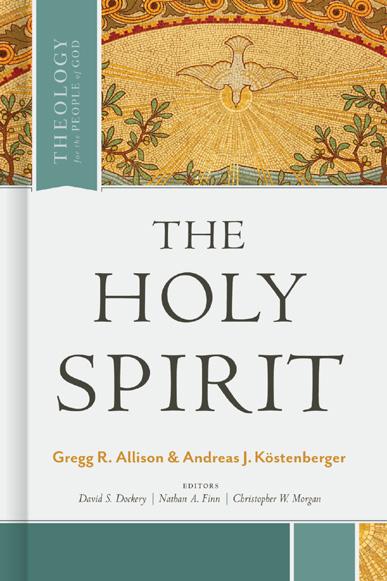
The Holy Spirit (Theology for the People of God)
R.
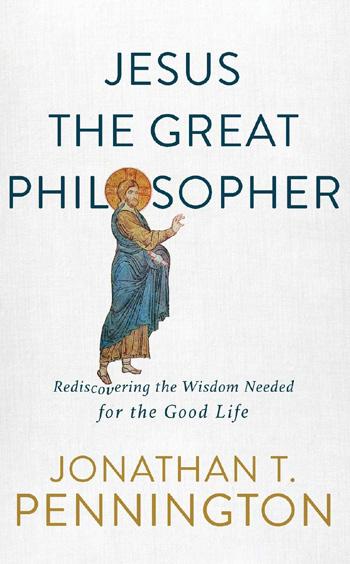
Jesus the Great Philosopher: Rediscovering the Wisdom Needed for the Good Life
Jonathan T. Pennington (Brazos Press 2020, $18.99)
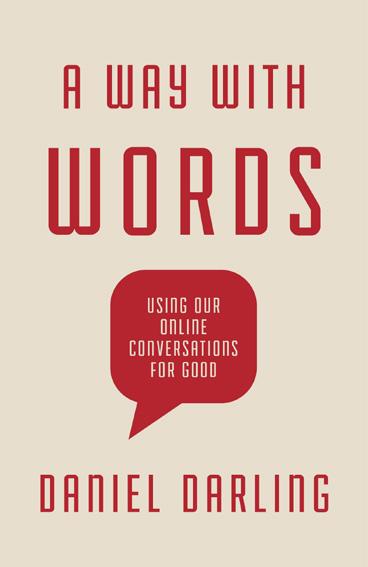
A Way with Words: Using Our Online Conversations for Good
Daniel Darling (B&H Books 2020, $17.99)
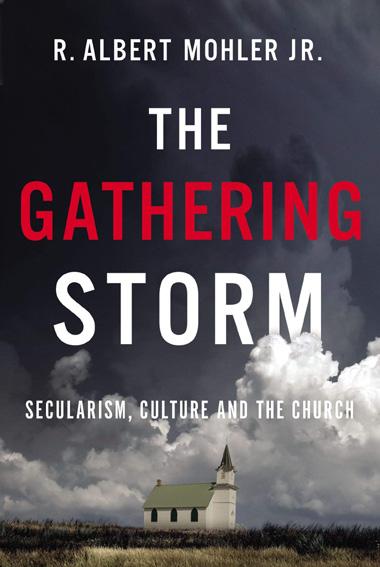
The Gathering Storm: Secularism, Culture, and the Church
R. Albert Mohler Jr. (Thomas Nelson 2020, $24.29)

Hebrew for Life: Strategies for Learning, Retaining, and Reviving Biblical Hebrew
Robert L. Plummer, Adam J. Howell, and Benjamin L. Merkle (Baker Academic 2020, $22.99)
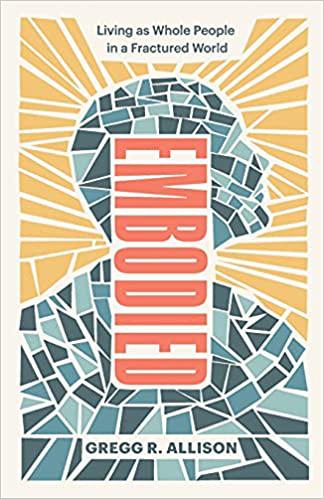
Embodied: Living as Whole People in a Fractured World
Gregg R. Allison (Baker Books 2021, $19.99)
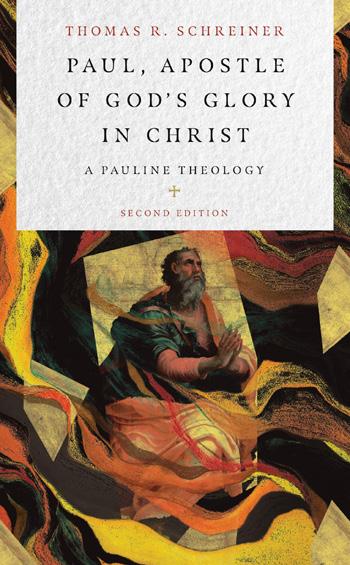
Paul, Apostle of God’s Glory in Christ: A Pauline Theology, 2nd edition
Thomas R. Schreiner (IVP Academic 2020, $50.00)
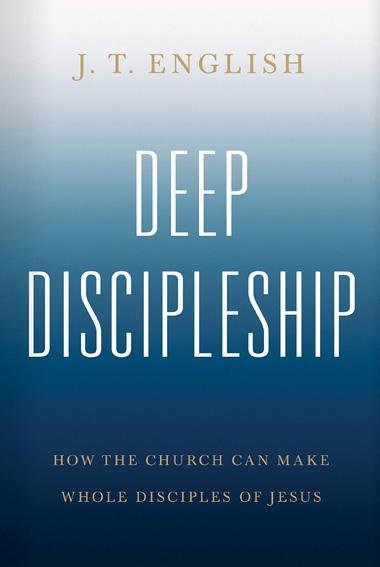
Deep Discipleship: How the Church Can Make Whole Disciples of Jesus
J. T. English (B&H Books 2020, $22.99)
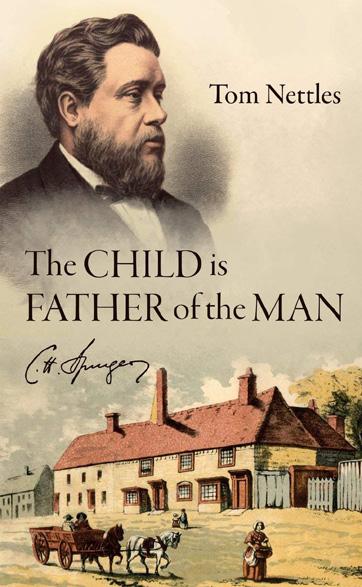
The Child is Father of the Man Tom Nettles (Christian Focus 2021, $14.99)
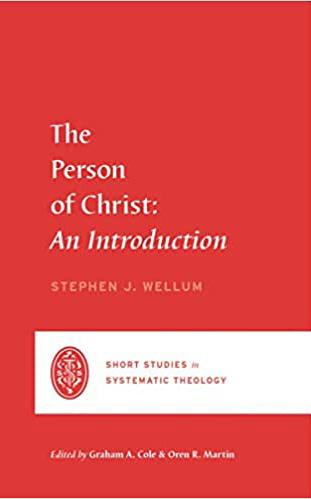
The Person of Christ: An Introduction
Stephen J. Wellum (Crossway 2021, $18.99)
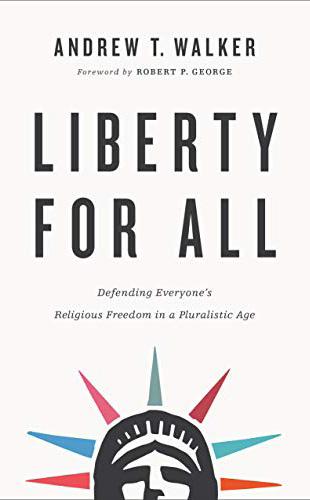
Liberty for All: Defending Everyone’s Religious Freedom in a Pluralistic Age
Andrew T. Walker (Brazos Press 2021, $19.99)
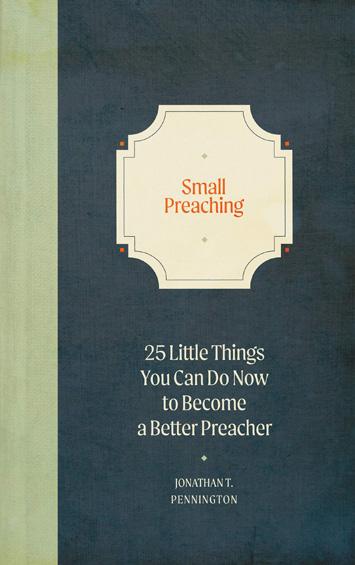
Small Preaching: 25 Little Things You Can Do Now to Make You a Better Preacher
Jonathan T. Pennington (Lexham Press 2021, $18.99)

A Concise Guide to the Quran: Answering Thirty Critical Questions
Ayman S. Ibrahim (Baker 2020, $22.99)
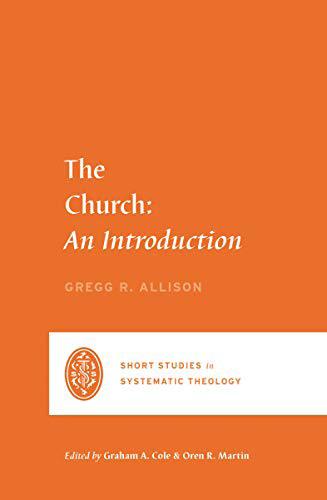
The Church: An Introduction (Short Studies in Systematic Theology)
Gregg R. Allison (Crossway 2021, $14.99)
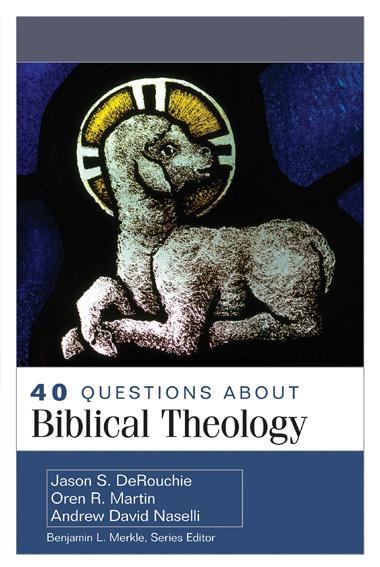
40 Questions about Biblical Theology
Oren R. Martin, Jason S. DeRouchie, and Andrew David Naselli (Kregel 2020, $27.99)

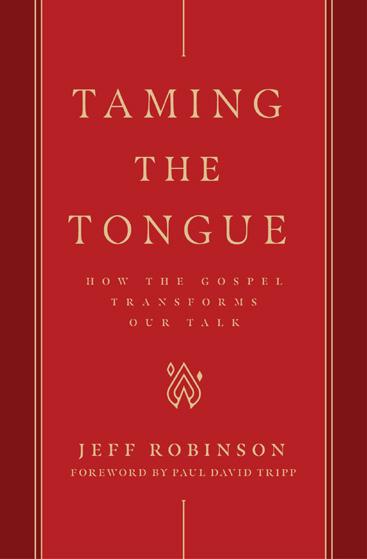

BOOKS BOOKS SBTS.EDU 31 30 SOUTHERN SEMINARY SPRING 2021
Gregg
Allison and Andreas J. Kostenberger (B&H Academic 2020, $44.99)
Character Matters: Shepherding in the Fruit of the Spirit
Aaron Menikoff (Moody Publishers 2020, $14.99)
Taming the Tongue: How the Gospel Transforms Our Talk
Jeff Robinson (The Gospel Coalition 2021, $12.99)
Nehemiah: A Pastoral and Exegetical Commentary
Terry Betts (Lexham Press 2020, $28.99)
Introducing Southern Seminary’s NEW PhD in Biblical Studies
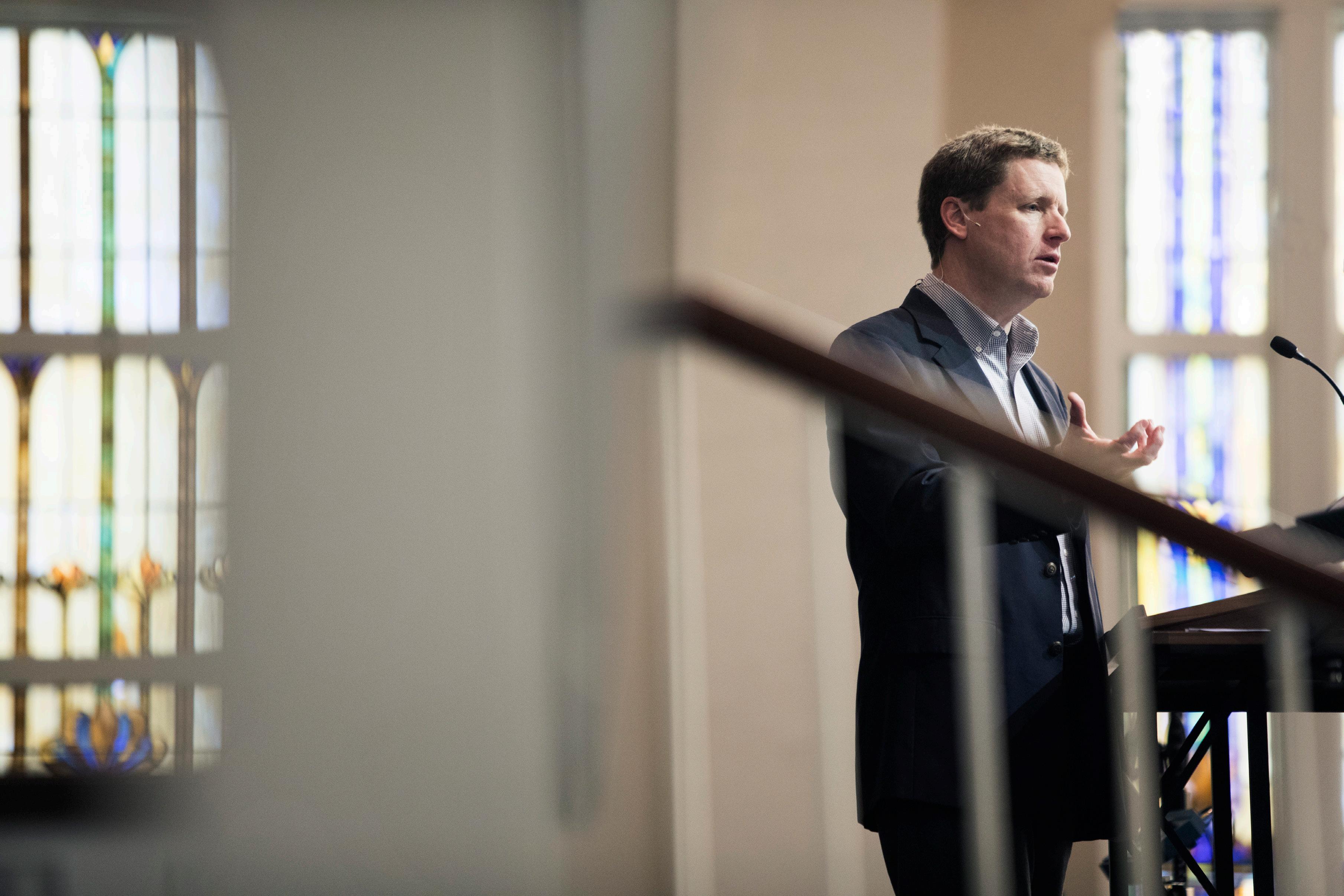
Remain in the pulpit while earning the credentials to teach at a college or seminary. Southern's hybrid class format allows students to complete their degree without relocating to Louisville.


The Glory of God at the Heart of Pauline Theology
An Interview with Thomas R. Schreiner
BY JEFF ROBINSON
tions with post-colonial readings, feminist readings, anti-imperial readings, etc. My book, however, centers on an exposition of Paul’s theology from the biblical text, because I wanted to write a book on Pauline theology that centers on what Paul himself said.
What other books on Paul would you recommend that pastors and teachers who regularly preach and teach God’s Word read?

o matter what you think of the apostle Paul, if you are a serious teacher of the Bible, you’ll have to come to grips with him. Thomas R. Schreiner, associate dean of the School of Theology and James Buchanan Harrison Professor of New Testament Interpretation and professor of biblical theology at Southern Seminary, has spent much of his life studying Paul and the complexities of his theology. In the second edition of Paul, Apostle of God's Glory in Christ, which has been revised throughout to engage the latest Pauline scholarship, Schreiner seeks to unearth Paul's worldview by observing what Paul actually says in his writings, laying out the most important themes and how they are connected. According to Schreiner, “The passion of Paul's life, the foundation and capstone of his vision, and the animating motive of his mission was the supremacy of God in and through the Lord Jesus Christ.” While continuing to return to this foundation, Schreiner explores themes such as the inclusion of the Gentiles in God’s people, the
power of sin, God’s liberating work of grace, and the unity of the church, as well as the often-neglected topics of Paul as a missionary and his apostolic sufferings.
What is new in the second edition?
I included some newer works on Pauline theology and reconsidered every line as I revised it. I would say, however, that upon reading the work again it is substantially the same book. I felt free to revise but for the most part I was pleased with what I wrote before.
How have Pauline studies changed since the first edition? What challenges—such as the New Perspective on Paul—have arisen?
The new perspective isn't new anymore! Still, I continue to interact with it, as I did in the first edition. The apocalyptic reading of Paul has become more popular, and I interact to some extent with this perspective. Of course, Pauline theology has branched off in so many direc-
I love Stephen Westerholm’s writings. He writes beautifully and in a compelling way. See his Perspectives Old and New on Paul and Justification Reconsidered I think Westerholm has the best treatment of the New Perspective on Paul. I don't agree with some significant parts of James Dunn’s The Theology of Paul the Apostle but I learned much from reading his book. I also don't agree with N. T. Wright's take on the New Perspective, but I especially enjoyed his Climax of the Covenant His two-volume work on Paul, Paul and the Faithfulness of God has many good insights but it is far too long for most readers.
You're a scholar who writes in a way that’s accessible for pastors and even thoughtful laymen. How would you like to see pastors benefit from the book?
I hope pastors have a better understanding of Paul, because that would mean they would have a better understanding of the whole Bible, and of God himself. Paul’s theology is particularly important because he reflects, in a unique and extensive manner, on the significance of the fulfillment of God’s saving promise in Jesus Christ. When we see the place which Paul’s writings occupy in the canon of Scripture, we see why his writings are so important for understanding who God is and what he has accomplished in Jesus Christ by the power of the Holy Spirit.
a sound, insightful, and trusted exposition of Paul's theology that is well-geared to the needs of seminary students and working pastors.
SBTS.EDU 33
Paul, Apostle of God's Glory in Christ: A Pauline Theology
Thomas R. Schreiner (Baker Academic 2020, $44.99)
Schreiner seeks to unearth Paul's worldview by observing what Paul actually says in his writings and laying out the most important themes and how they are connected.
According to Schreiner, “The passion of Paul's life, the foundation and capstone of his vision, and the animating motive of his mission was the supremacy of God in and through the Lord Jesus Christ.” Now in its second edition, Paul, Apostle of God's Glory in Christ remains
N BOOKS
Learn more at SBTS.EDU/PHD
Help! I’ve Lost My Greek and Hebrew
Howell and Plummer discuss strategies and motivation for retaining Hebrew
BY FORREST STRICKLAND
Ministers of God’s Word are expected to know the languages in which God’s Word was originally written, Hebrew and Greek, with some Aramaic. But often those who have previously studied Hebrew and Greek allow their knowledge of the languages to slip away, as the pressures of ministry reshape priorities and commitments. In Hebrew for Life Adam J. Howell (with Robert L. Plummer and Benjamin L. Merkle) seeks to give readers the motivation and accountability to continue growing in their understanding of Hebrew.
When people think of a textbook on the biblical languages, they stereotype it as filled with declensions, grammar rules, and worksheets. How is this book different?
RPL: This book was designed as a personal trainer for Hebrew. Everyone knows you should exercise, but most people don’t go to the gym. However, if they hire a trainer, then they have someone who tells them, “You need to do this. You need to do that.” The trainer encourages them not to stop when it’s difficult, and the trainer also gives them a plan for making progress. In a way, this book is a paperback personal trainer for biblical languages.
You reference the “law of the harvest” as a motivating factor for learning Hebrew. What is it and how does it drive our study?
AJH: When it comes to the original
languages, we have to focus on the long game. In our culture, we want things fast. We assume we can finish everything we need for the languages in two semesters. But understanding the biblical languages is a lifelong journey. I'm hoping we can convince people of this. Even if you only get the minimal semesters, there's plenty more to know, learn, and love about the original languages. For most people, it will take many years to reach a level of enjoyment. So the “law of the harvest” is this: the diligent work of planting and watering must happen now, and the payoff may not come until later. So, long for the harvest days when you can sit down and open up your Hebrew Old Testament and Greek New Testament and read them with love and great joy.
Luther said: “If through our neglect we let the languages go, we shall lose the gospel.” Why do you think our perception of the original languages’ importance has shifted today?
AJH: I can speak to Hebrew particularly. One reason is that people are intimidated by it. I tell my students that Hebrew is more intimidating than it is hard. The script is entirely foreign to us, and you read it backward when compared to most of our native languages. Second, positive advances in translation techniques have led some to assume the original languages are unnecessary. Thankfully, we do have good English translations, but this doesn’t cancel the value of learning the languages. Finally, there’s an undercurrent in our
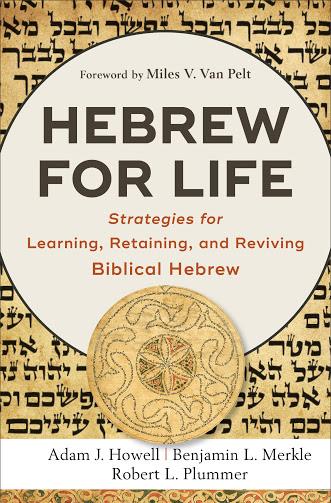
culture: we don't want to do difficult things like learning Hebrew.
RLP: It’s a lot easier for someone to waste time on YouTube videos or spend hours skimming through Instagram and Facebook than it is to work on learning Hebrew and Greek. But when you think about how many thousands of hours we spend on trivial and unimportant matters, it’s shocking. We need to be challenged by this uncomfortable truth: we do what we love. We must be careful to reinforce our love for God’s Word rather than trivial things.
How would you encourage someone who has fallen away from studying the original languages?
AJH: It can be done. A lot of people think they’ve fallen too far from their previous studies. Pride may even get in the way and they’ll start thinking “It’s not worth starting with the alphabet again.” To that person, I would say: you can do it, and it’s worth it.
RLP: Seeing people successfully return can be a great motivation. I've personally seen many people come back successfully with less ability and more years on them than the person reading this interview. Success in returning to the biblical languages is not a matter of raw intellectual ability; it’s a matter of desire and strategy. Hebrew for Life gives you the strategy. If you choose to read it, you already have a desire—one the book will fan into flames. The future is bright for the person who has enough motivation to read a book like this.
Hebrew for Life: Strategies for Learning, Retaining, and Reviving Biblical Hebrew
Today’s Churches Need the Whole Counsel of God
(Baker Academic 2020, $22.99)
Three experienced biblical language professors inspire readers to learn, retain, and use Hebrew for ministry, setting them on a lifelong journey of reading and loving the Hebrew Bible. This highly practical volume incorporates research-tested strategies for learning; presents methods not usually covered in other textbooks; and surveys helpful resources for recovering Hebrew after a long period of disuse.
Southern Seminary introduces the NEW Doctor of Ministry in Old Testament Exposition
Though often neglected in the pulpit, the Old Testament richly displays the glories of God in Christ, for those trained to study it carefully. This concentration equips pastors toward faithful preaching and teaching by focusing on particular language and exegetical skills related to the study of the Old Testament with a special emphasis on application in the local church. NOW OPEN TO MA AND MDIV GRADUATES.
Learn more at SBTS.EDU/OT

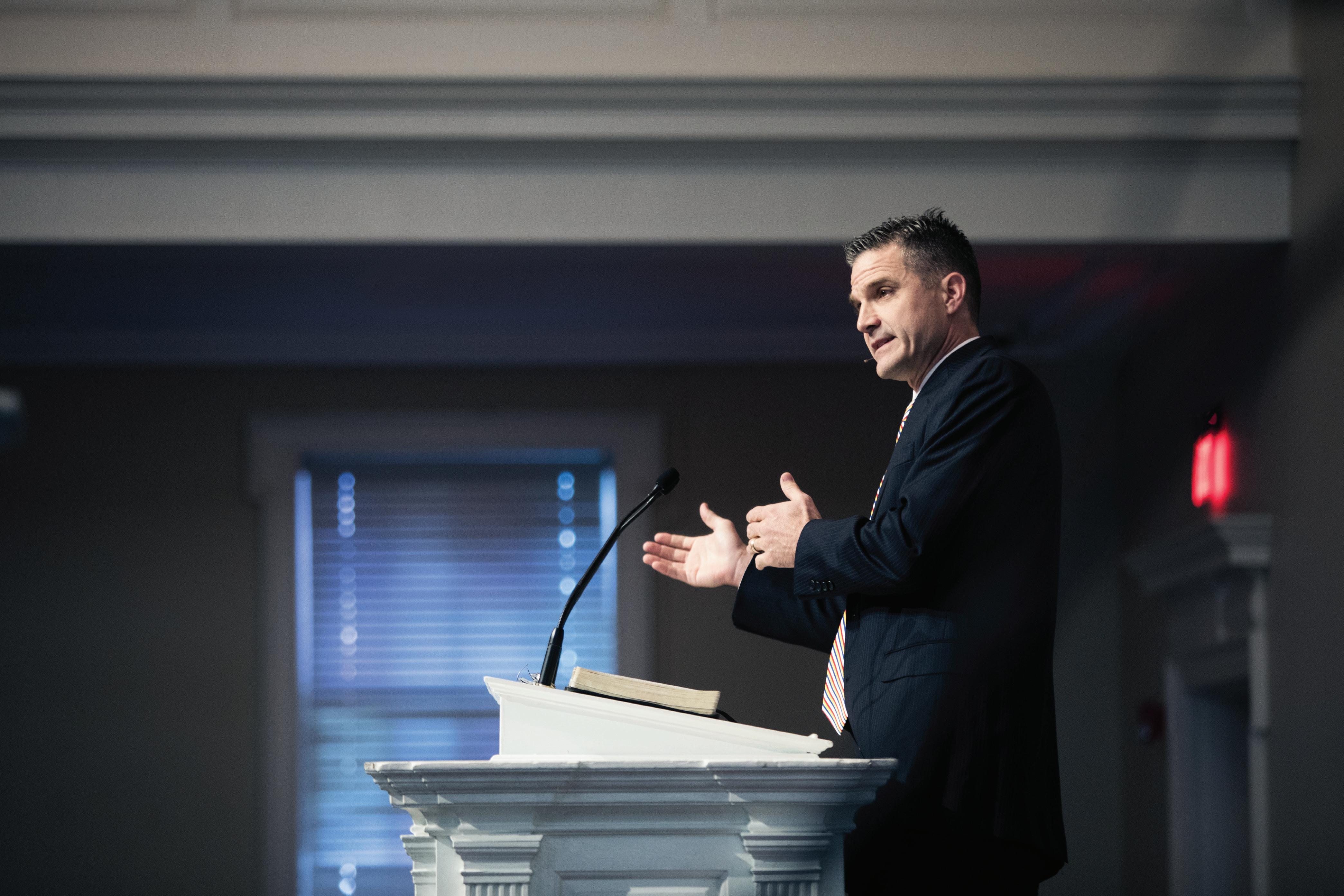
BOOKS 34 SOUTHERN SEMINARY SPRING 2021
Robert L. Plummer, Adam J. Howell, and Benjamin L. Merkle
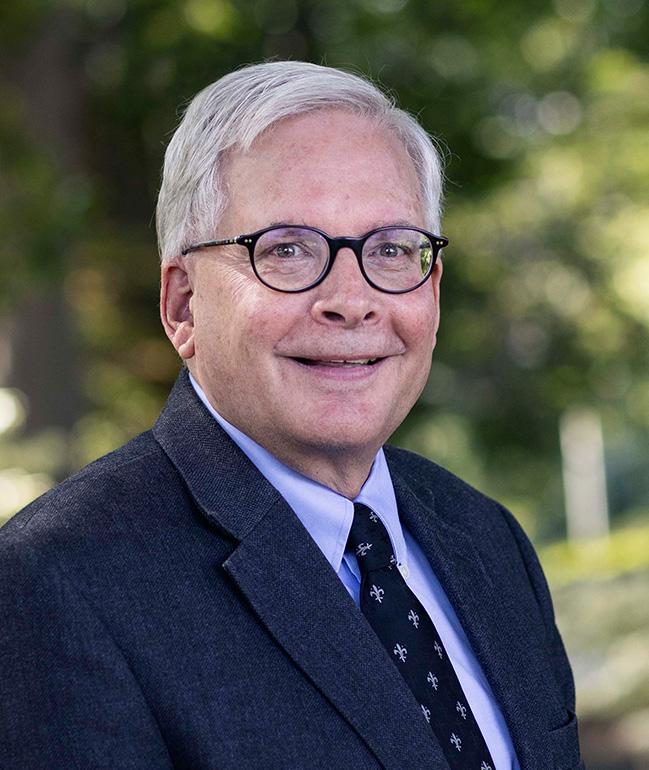
TCultivating Dependence and Calming Fears
An Interview with Gregg R. Allison
BY JARED KENNEDY
he Theology for the People of God series by B&H Academic combines biblical and systematic theology in dialogue with historical theology with application to the church and life. The series addresses the classic loci of systematic theology by pairing a biblical scholar and a theologian. The first volume released, The Holy Spirit, pairs Andreas J. Köstenberger, research professor of New Testament at Midwestern Seminary, with Southern Seminary’s own Gregg R. Allison, professor of christian theology.
Can you explain the outline of the book?
Our approach in the outline of the book resonates deeply with my personal approach to doing theology, that is, that our practical theology is rooted in exegetical, biblical, historical, and systematic theology in dialogue together. Andreas wrote the first half of the book, looking at all the passages about the Holy Spirit in the Old and New Testaments. It was wonderful to work with him. Then, I wrote the second half, providing a systematic theology of the Spirit aimed at the church.
When we’re doing systematics, we can’t just move directly from biblical to systematic theology, because, when we do the exegetical work, we already have our theology in mind. But we have to begin somewhere. Because we believe in the authority of the Bible, it’s both right and helpful to begin with the text, allowing it to correct our assumptions, then moving forward from there.
How would you expect this book to be used profitably by students of the Bible?
It’s an exhaustive work that's going to be helpful for any student of the Holy Spirit. Anyone who wants to look at every passage in the Bible that talks about the Holy Spirit will have Andreas’s first half; every passage is discussed. But, more importantly, we pray and hope that people who read our book would become more consciously dependent upon the Spirit, being filled by him and walking with him. We also hope that that readers of the book will have some of their fears about the Holy Spirit calmed.
What other aspects of our doctrine of the Spirit are significant for pastoral ministry?
There are three key doctrines. First, the Spirit and the Word. Baptists are well-known as people of the book, but we’re less well-known as people who entrust ourselves to the Spirit.
The reformers achieved a great balance here. We call upon pastors and Christians to regularly ask the Spirit for illumination so they may rightly understand the Bible and have soft hearts to respond to God’s Word. Second, the Spirit and salvation. Readers will be amazed at how every mighty act of God in saving us is connected in some way to the Spirit.
Before we believe, the Spirit convicts us of sin. He brings about the work of regeneration, unites us with Christ, brings about our adoption, and gives us assurance; he sanctifies, guides, and ultimately will resurrect us. Finally, the Spirit and the church. The Holy Spirit gave birth to the church when he was poured out by the Father and Son on the day of Pentecost, and it’s the Spirit who gives birth to new churches today; he directs, empowers, and pushes churches to engage as a witness to the world.

The Holy Spirit (Theology for the People of God)
Gregg R. Allison and Andreas J. Kostenberger (B&H Academic 2020, $44.99)
Why do evangelicals tend to treat the third person of the Godhead like a member of the junior varsity team? Allison and Kostenberger take an in-depth look at the Holy Spirit from biblical, theological, and historical standpoints. And it also deals with various views on contemporary issues surrounding the Spirit such as the continuation or cessation of the so-called sign gifts, how the Spirit shapes our worship, and much more.
Faculty books
Recent titles written by the faculty of Southern Seminary

The Child is Father of the Man
Tom Nettles (Christian Focus 2021, $14.99)
This book is not merely a summary of Nettles’ massive 2013 theological biography of Spurgeon. In this new work, Nettles isolates 10 key convictions that appear in Spurgeon’s life either before or immediately after his conversion, and traces them through his life as he develops into the charming, interesting, confident, humble, spiritual–minded man and pastor whose work and witness dominated evangelicalism in the last half of the 19th century.
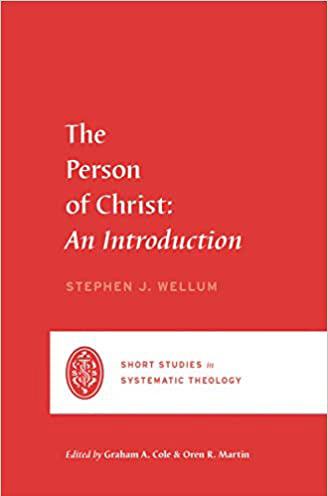
The Person of Christ: An Introduction
Stephen J. Wellum (Crossway 2021, $18.99)
A volume in the multi-volume Short Studies in Systematic Theology series, Wellum helps readers to see the falsehood of the claims that Jesus was far more than a wise philosopher, a social revolutionary, or the founder of a religion—he is very God of very God. Wellum argues for the divinity of Jesus according to the Scriptures in line with historic, creedal Christianity.

The Church: An Introduction
Gregg R. Allison (Crossway 2021, $14.99)
This volume, also part of the multi-volume Short Studies in Systematic Theology series. It helps define the church and its mission by presenting an overview of the specific doctrines and practices of different churches and denominations. Allison lays the foundation for a better understanding of local church communities and the way they diverge from one another, but he also shows how they are ultimately united as the body of Christ and the temple of the Holy Spirit.

40 Questions about Biblical Theology
Oren
To understand what the entire Bible teaches about any given subject, we must practice biblical theology. By surveying the whole canon of Scripture, we can best discern what God has revealed about any particular issue. But doing so requires answering a number of important questions: What type of biblical theology will we choose? What overall story does the Bible tell? How should we understand the relationship between the Old and New Testaments? How does our topic fit within salvation history? How do we apply the truths we discover?
BOOKS BOOKS SBTS.EDU 37 36 SOUTHERN SEMINARY SPRING 2021
R. Martin, Jason S. DeRouchie, and Andrew David Naselli (Kregel 2020, $27.99)

Introducing the NEW Doctor of Ministry in Discipleship and Christian Education from Southern Seminary
Designed for Christian educators and those leading ministries to children, students, women, or adults.
Open to MA and MDiv graduates
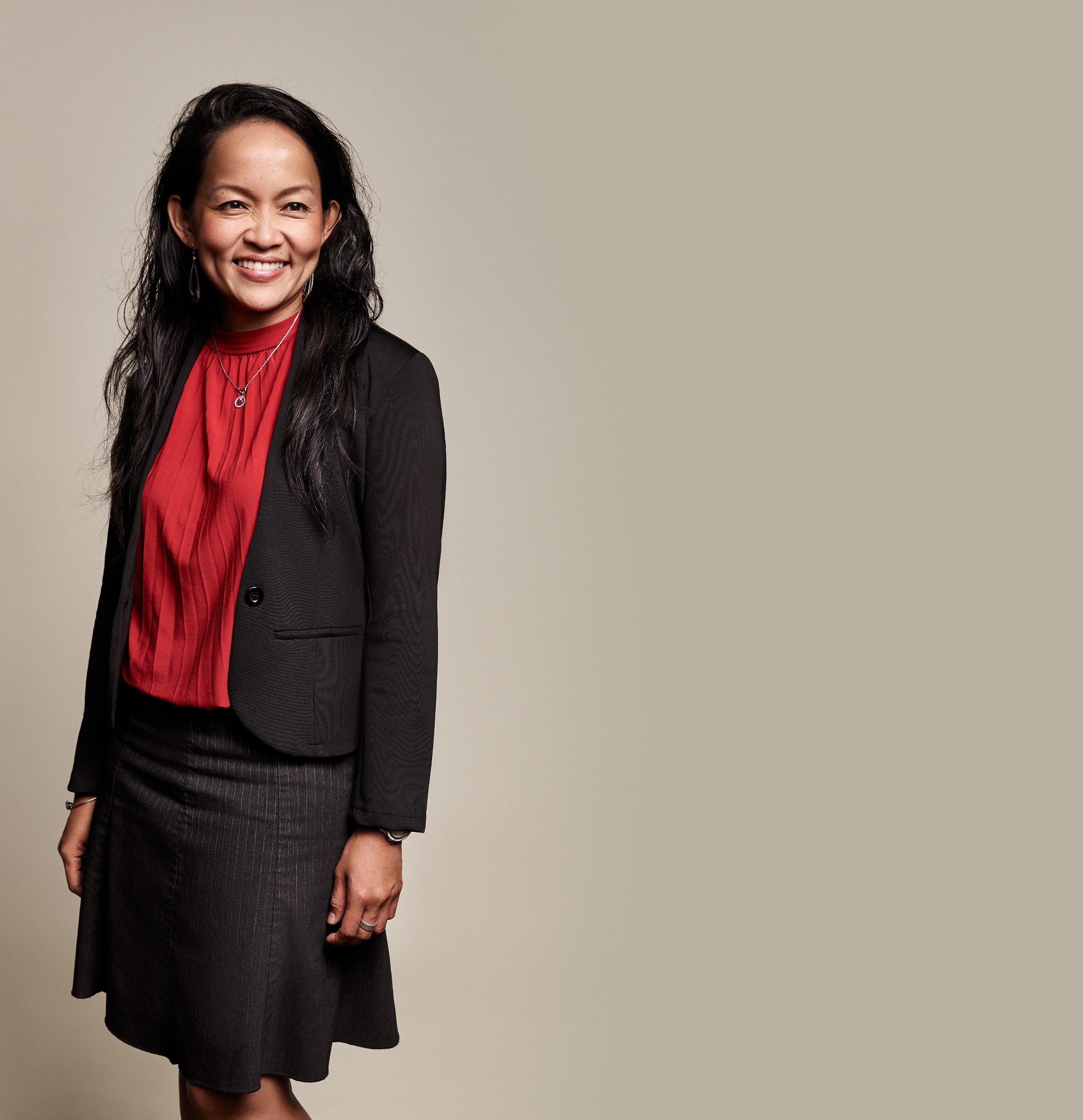
Confident in God’s Unchanging Word
Lenny Hartono's ministry in the Hardest Circumstances
BY JARED KENNEDY

Lenny Hartono grew up in a small town, Tulungagung in East Java, Indonesia. She was raised by a Buddhist father and a church-going mother. She came to the US in 1999 to pursue a marketing degree, and the Lord saved her during her junior year of college. “After saving me,” says Hartono, “the Lord put his desire in my heart to pray and fight for the salvation of the rest of my family. God saved my mom, my big brother, brother-in-law, little brother, and later on, my dad”
After graduating, Lenny worked for six years in a small business in Shelbyville, Kentucky, and attended a small church in Louisville.
“God used that church to grow me in my faith, in love for his Word, and in love for the lost.”
Hartono returned to Indonesia in 2010 and then spent two years in China, studying the language and sharing the gospel with Chinese people. When she returned to the States, she again worked for the business in Shelbyville.
While working there, a friend who was going through a difficult divorce approached Lenny and asked for her advice and counsel. Lenny tried to help the best she knew how, but Hartono was at a very different stage of life. Though she’d been discipled in a local church and even served overseas, she knew that counseling her friend through her expe-
rience alone would not suffice. Hartono knew she needed a different basis: “I told her, ‘I’m single,’” says Hartono, “but I can be confident because I have the Word of God.’” God’s Word is timeless and unchanging, and it provided exactly what her friend needed to hear. “I was so blown away that God was able to use my counsel,” Hartono said. “It was then I realized that the Word of God really does change people’s hearts regardless of what situation they are in.”
While working in Shelbyville, Hartono had responsibility for around 150 staff people at the local business. While she was there, some of the female staff opened up to her about their life struggles.
“Instead of being overwhelmed by their suffering, God began to give me his compassion toward them,” Hartono said. “I’d share truths from God’s Word, but I’d often get stuck in hard cases.” Hartono was developing a love for counseling others, but she knew that she lacked the kind of formal training she’d need to be the best possible counselor. She began to pray about it, asking the Lord to help her find the training she needed. Through her older brother Jemmy, Hartono was introduced to Southern Seminary, and she began classes in the fall of 2015. Hartono’s time at Southern was transformational.
CONTINUED ON PAGE 40
39 ALUMNI SBTS.EDU/ALUMNI
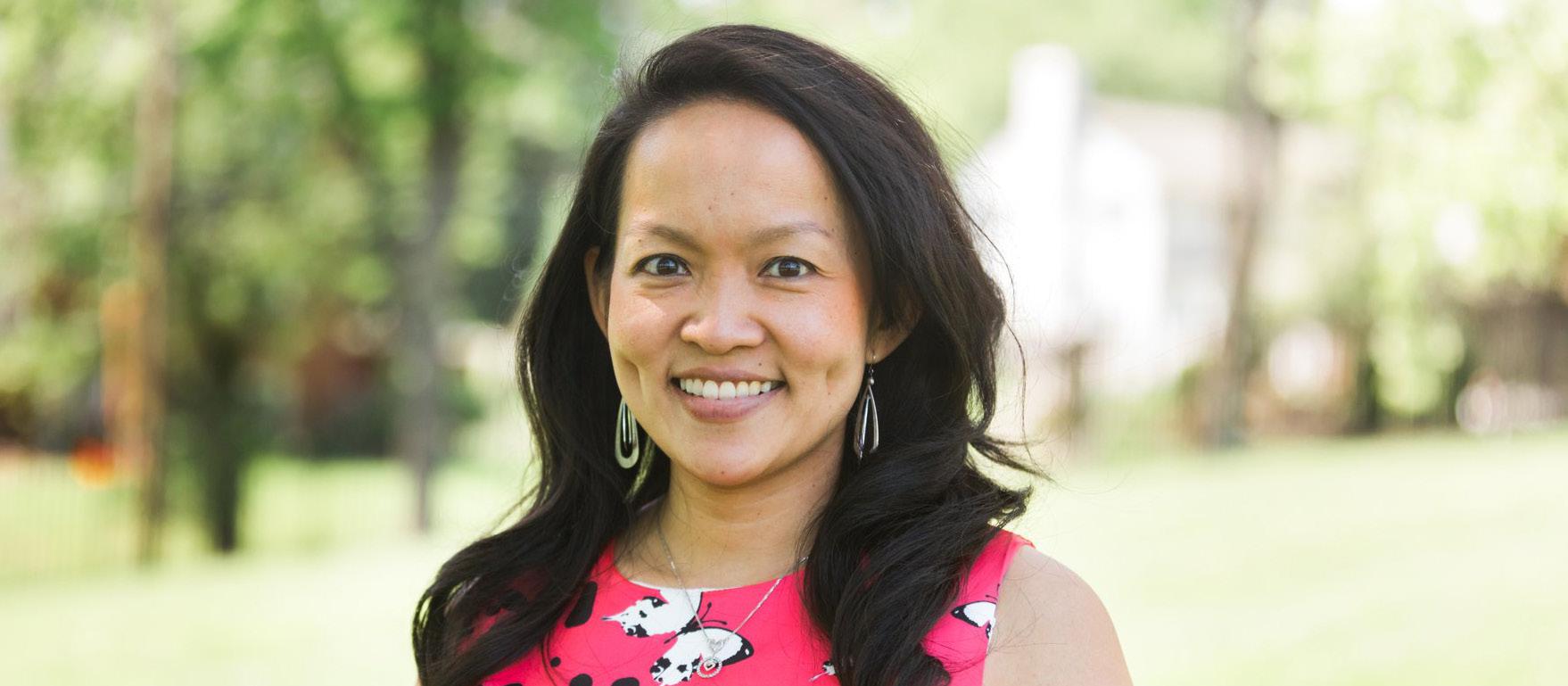
“The Word of God really does change people’s hearts regardless of what situation they are in.”
“I not only learned more about counseling, but I was changed. I had professors who told me that I had to change first before I could be used by God to change others,” she said.
“And now, Southern Seminary has equipped me to counsel others. In the hardest cases, I can be confident because it is the Word of God that changes lives.”
Hartono received her MA in biblical counseling in 2019. After graduation from Southern, Hartono served for a short time as a case manager and counselor at the Southern Indiana campus of Re:Center Ministries, a gospel mission organization that reconciles homeless and hurting people to God, family, and community through the power of Christ and in partnership with the local church.
Hartono provided counseling services and lead support groups and classes for people at risk of homelessness.
“God’s grace enabled me to connect the counselees’ felt needs with their true need for Jesus Christ; I was usually able to share the gospel with each counselee during our first or second session.”
In March 2020, as quarantine restrictions due to the COVID-19 pandemic began to be put in place, Hartono flew home to Indonesia earlier than she had planned. Coupled with the news of the pandemic, Hartono received unexpected news that her father had been admitted to an intensive-care unit. Eighteen minutes after her
plane landed in her home country, Hartono’s father went home to be with the Lord.
“I had not seen Dad in two years,” Hartono said, and “even though I came home much faster to see him, I only saw his dead body. It was hard to process.”
Hartono has wrestled with how God can be faithful in the midst of her father’s death and her sudden transition back to Indonesia: “Things have been so heavy that I’ve asked, ‘Why me, God?’” “God does not owe me an explanation,” Hartono said, “But, in his kindness, he’s given me comfort.”
She pointed to the comfort she’s found in Hebrews 4:15–16: “For we do not have a high priest who is unable to sympathize with our weaknesses, but one who has been tempted in every way as we are, yet without sin. Therefore, let us approach the throne of grace with boldness, so that we may receive mercy and find grace to help us in time of need.”
Hartono now finds that she needs the same good news she’s spoken to others in their hard places.
“One thing I know. In each of my sufferings, God’s Word remains unchanging and timeless.”
And Hartono is already having opportunities to comfort others with the same comfort that she has received from God (2 Cor. 1:3–4).
“In every conversation I’ve had about my Dad,” Hartono said, “the gospel has been proclaimed.”
From Oregon to Louisville to the Deep South
SBTS Grad Patiently Revitalizing Georgia Church
BY JEFF ROBINSON
Aaron Menikoff was uncertain about taking a church in Georgia, a Deep South state he was unfamiliar with, a place vastly different from his native Oregon.
But after much prayer and consideration, Menikoff submitted to what he came to know was God’s will, and in June of 2008 Menikoff, a two-time SBTS graduate, was elected senior pastor of Mount Vernon Baptist Church in Sandy Springs, a suburb just north of Atlanta. The thought of moving to a region that was somewhat foreign to him was more than a bit uneasy, made worse by Menikoff’s soon realization that much of the so-called Bible Belt’s Christianity was little more than a cultural adornment.
“I joked how ironic it was that my friend, Michael Lawrence who is from the South, moved to pastor Hinson Baptist Church in Portland while I, being from Oregon, landed at Mount Vernon in Atlanta.
“However, not only did I trust God’s providence in moving people around as he sees fit, but I also saw God’s wisdom in placing a man from another culture at Mount Vernon. I grew up in an unbelieving home in secular territory. That has given me a unique voice to speak into a region filled with nominal Christianity.”
A Church in Decline
Upon arrival in Atlanta, Menikoff found a church in dire need of revitalization. It wasn’t what he’d expected—the situation was far worse. And there was really no “honeymoon period” for him as several of the church members left because he didn’t view pragmatic numerical growth as the church’s leading priority.
“When I arrived, I expected to find a conservative church accustomed to fairly light preaching with little emphasis on robust theology,” he said. “I expected to find a church with a heart for missions and an eagerness to grow spiritually and numerically. The church had been in a season of decline for a number of years and wanted to see that trend reversed.
“I quickly discovered the church had no meaningful membership. The attendance on Sunday morning bore little resemblance to the directory. Most members said they valued a strong, Word-centered ministry. Nonetheless, I faced some resistance to too much preaching about the cross.
“A good portion pinned their hopes for the church’s future on an exciting children, youth, and music ministry to grow the church. The majority of members who left
CONTINUED ON PAGE 42
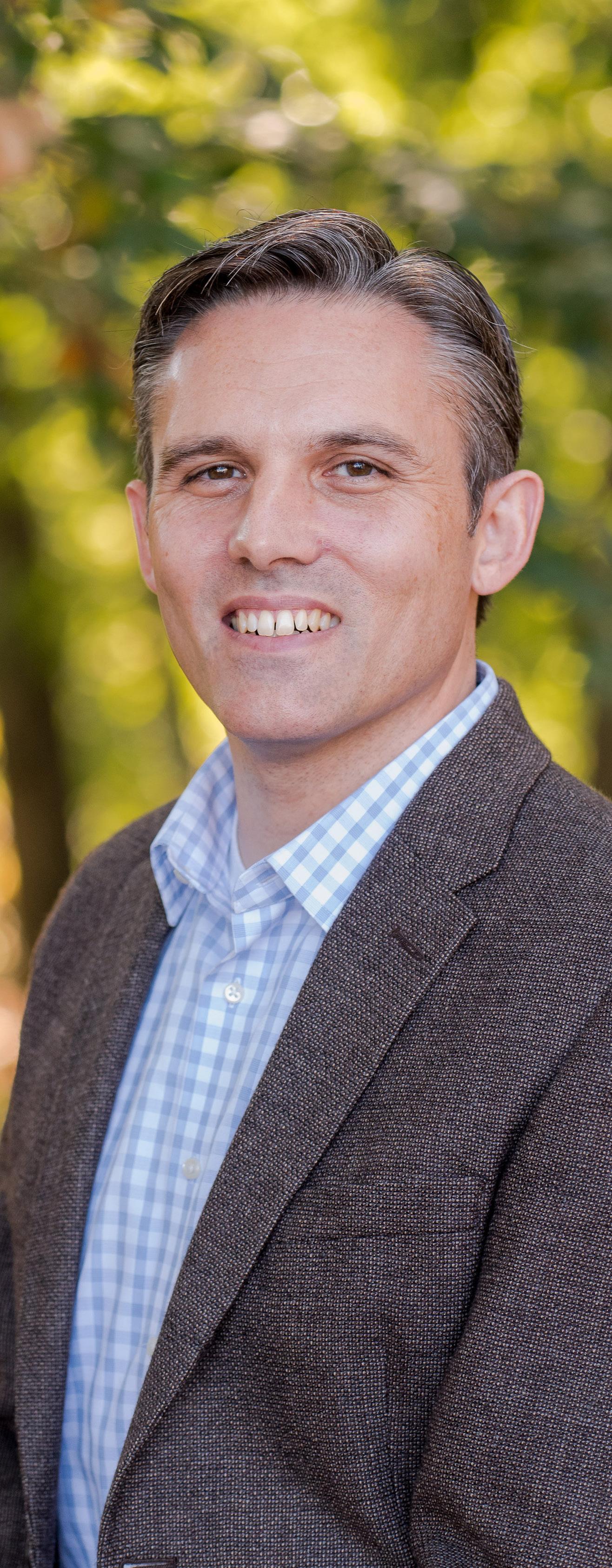
SBTS.EDU 41 40 SOUTHERN SEMINARY SPRING 2021
ALUMNI @SBTSAlumni ALUMNI
in those early years didn’t appreciate my approach to these particular ministries.”
Menikoff knew it would be a long, slow slog to reach a reasonable level of spiritual health at Mount Vernon, and it indeed was. He took years preaching and teaching sound theology and biblical ecclesiology even on things as basic as church membership, hospitality, and church polity. Over time, the church adopted the New Testament teaching on a plurality of elders and learned how to live out the “one another” admonitions as taught in the New Testament.
Other dominoes of church health began to fall into place: biblical evangelism, discipleship, family ministry. Attitudes began to change as the church embraced a spirit of warm generosity toward fellow members and other churches. God raised up mature elders to assist with the ministry and servant-hearted deacons to help serve fundamental physical needs.
The first key that unlocked needed change in the church was expository preaching.
“The revitalization process took years,” he said. “It took me a while to feel comfortable preaching week in and week out. I’m glad much of the church was patient with me as I grew in this area. Preaching isn’t the only thing I do, but is the most important, and I saw a robust preaching ministry as fundamental to our church’s future.
“We didn’t unveil a special program. I simply sprinkled teaching in these areas everywhere for the next decade. Looking back, this allowed me to stay focused on some areas in which we really needed to grow and improve.”
Oregon to Capitol Hill to Louisville
Menikoff’s journey to pastoral ministry began in Washington, D.C. in the mid-1990s. He came to faith in Christ soon after his senior year in high school and after graduating from the University of Oregon moved to D.C. for an internship in 1994 with the U.S. senator from Oregon.
The senator attended Capitol Hill Baptist Church and Menikoff began to visit as well. His first Sunday at the church was the Sunday before a new pastor was installed. The new pastor was Mark Dever. Meeting Dever turned out to be a life-changing providence for Menikoff.
“It’s there that I first heard expositional preaching, experienced biblical hospitality,
and fell in love with the local church,” Menikoff said. “I enjoyed working in politics—I’d gone on staff with Senator Mark Hatfield his final term—but I loved the church more than working on the Hill. In late 1996 I went on staff as a pastoral assistant (at CHBC) before heading off to seminary a few years later. Menikoff moved with his wife, Deana, moved to Louisville in 2000 and completed his MDiv at SBTS in 2003. He graduated with a PhD in church history in 2008. The Menikoff family grew as Aaron and Deana had three children while in Louisville and continued to grow as they adopted a fourth after moving to Atlanta.
A Ministry Marked by Dever
During his years in seminary, Menikoff served as an elder at Third Avenue Baptist Church and has also continued to work closely with Dever and 9Marks Ministries, contributing articles and videos as well as speaking at numerous 9Marks events.
Said Menikoff: “I remember listening to Alistair Begg teach on preaching. He said, ‘Everything I learned about preaching I learned from Dick Lucas’—the great London preacher. Similarly, I could say everything I learned about pastoral ministry I learned from Mark Dever. When I read his little book Discipling I can honestly say he modeled for me what he wrote about in that book.
“I had the privilege of being a member of his church before 9Marks even existed. I’m thankful for this ministry because I know it flows out of a genuine, faithful ministry in a local church—one I got to be part of for so many years. I’m thankful his ministry has expanded through 9Marks.”
Writing, Preaching, and Encouraging Associationalism
Last year Menikoff published his first book through Moody under the imprint of 9Marks, Character Matters: Shepherding in the Fruit of the Spirit, a work aimed at the spiritual health of pastors. Mount Vernon’s ministry footprint continues to expand in Atlanta and beyond. Menikoff and the church pour into the Greater Atlanta Baptist Network, an association of like-minded churches designed to encourage and equip member churches.
Mount Vernon hosts a one-day confer-
ence for pastors and laymen involved in local church ministry called Feed My Sheep. The conference will mark its 10th anniversary in 2022 and will host its first event this October for pastor’s wives.
“One of my passions is helping pastors rediscover a vision for local associations or networks,” he said. “The current conversations we are having at the national level are contentious, in part, because we’ve lost the ability to relate to one another at the local level. If we think ‘denominationalism’ is what happens through national entities, we are a missing the biblical example of churches who genuinely know, encourage, and equip one another.
“I’m glad we can partner together nationally. However, that national partnership will fray if it is not underscored by robust local associational life. This is what we’re seeing right now.”
Even as Mount Vernon continues to grow, Menikoff is thankful for the path God has taken him down in ministry including the eight years his family spent in Louisville.
“I’m grateful for this extended season to study on campus at SBTS under great theologians and as an elder at Third Avenue Baptist Church,” he said. “Those years in school were very challenging, I’m not sure I could have lasted much longer! I’m really glad I had an on-campus experience. God used this season of study to help prepare me for a lifetime of learning and teaching.”
“The current conversations we are having at the national level are contentious, in part, because we’ve lost the ability to relate to one another at the local level.”

A Legacy of Wisdom and Discipleship
How Dale and Mavis Smith Support Southern
BY JARED KENNEDY
ale and Mavis Smith moved to Kentucky from East Tennessee 57 years ago. They came to start a feed business—one that was unique to the area at the time. Before the move, Smith purchased a large feed mill he towed around from farm to farm in the back of his truck.
“We went to them, to the bigger farmers,” Smith said, “and we could grind around 2,400 pounds of feed with all the necessary minerals in about 20 minutes.” Each week, Smith would run his route, visiting the big farms in a different Central Kentucky county each day.
“There was nothing like that in Kentucky at the time; so, I went up to Pennsylvania to learn how, and then I just started doing it.”
The Smiths live in Cave City, outside of Glasgow, Kentucky. Over the nearly six decades they’ve spent in Barren County, the couple has owned three family businesses. It began with the feed business. Several years later they became distributors for the Ashland Oil Company. Then, in the early 1980’s, they opened a machining shop. I asked Mr. Smith what was similar about the three business ventures. He told me, “They weren’t! That’s the adventure. You get to learn all of this stuff.”
When talking to Smith, he made it clear right away that he’s an eager and humble student: “I didn’t go into each business and tell people what to do, how their line of work should be done. Instead, I kept my ears open, and I learned a lot.”
Smith also kept his ears open to hear from the Lord. Smith considers his relationship with God to be central to everything he does in business: “In every decision, you first talk it over with God. Then, you do the best you can and leave the rest up to him.”
“One day I was approached by an older Christian gentleman; he was one of the godliest men I knew, but we were competitors in the machining business in the same town. We decided to become partners.”
Madison-Smith Machine and Tool Company, which the two founded in 1983, began in a 4,000-square-foot facility, and it has earned a stellar reputation delivering industrial services such as machining, welding, and rigging for more than thirty years. “We started with a little machine shop then we put in a factory and then we moved factories,” Smith told me. The company now boasts a 63,000-square-foot, cutting edge facility.
Smith’s partnership with Clark Madison was a great grace, and now he and Mrs. Smith are eager to pass on the same gracious legacy to others. The Smiths first became supporters of Southern Seminary in 2013 after they sold the machine and tool business. They became foundation members in 2015. Part of their eager support stems from the trust the Smith’s have in Southern’s leadership, beginning with R. Albert Mohler Jr. Smith described Mohler as humble, gracious, and committed to leaving a trustworthy legacy for the next generation.
“We’re convinced Dr. Mohler has the seminary on the right track,” he said. The love they have for Southern is something the Smiths share together.
“The more you get to know everyone at the seminary, the more you love them,” Smith said, “We love those people to death up there.”
Mr. Dale Smith recently celebrated his eighty-fourth birthday. At this point in his life, Smith has much to pass along to others. But in a recent conversation, he couldn’t stop talking about those who had first poured into him. He reflected on the role of his pastors at Glasgow Baptist Church in his discipleship. The Smiths have been members there since they moved to Kentucky. He remembers, too, an evangelist whose vision encouraged him to begin supporting Christian seminary education. But one individual who stood out particularly in Mr. Smith’s mind was Clark Madison:
SBTS.EDU SOUTHERN SEMINARY SPRING 2021 43 42
ALUMNI @SBTSAlumni
SUPPORT DONATE.SBTS.EDU
D
Three Fall Giving Campaigns Raise $1.5 Million for the Southern Fund
BY TRAVIS HEARNE

Southern Seminary’s Fall Giving Day, Heritage Golf Classic, and Year End Giving Campaign combined to raise $1,560,000. The fundraising success came at a time when higher education was facing a crisis.
Vice president of communications edward Heinze was thankful for the loyalty of the SBTS donor base.
“Our core donor base has stood with us through this tumultuous season.” He said “They saw the unique needs of our students and increased their financial support to help ensure that economic pressures didn’t result in a decline in graduates.”
Southern hosts three main giving day campaigns:
· The Heritage Golf Classic (August 24) raised $220,000
· Fall Southern Giving Days (September 17-18) raised $567,000.00 [The previous record was $304,000 in 2018]
· Year-End Giving Campaign (December) raised $773,000.00
The combined collections are designated to the Southern Fund which helps tuition rates remain as low as possible.
“We like to state that every dollar raised in the Southern Fund is one less dollar our students have to pay in tuition” Heinze said “It’s a vital revenue source that has a significant impact on our students and the cost of their theological training.”
Proclaiming eternal truth in changing times has been Southern’s mission. The donor base, according to Heinze, is committed to seeing SBTS train ministers of the gospel to fulfill this mission.
“Our donors are looking at the culture and the need for the gospel domestically and internationally. In response, they have increased their financial support of our students.”
Graduates from SBTS are trusted. Heinze recognizes that the biblical fidelity of South-
ern’s faculty give its supporters confidence.
“Because they have a high regard for our faculty and the training provided in our classrooms—they see graduates as a highly effective way to advance the gospel to a world in need.”
Finances didn’t disrupt the progress of students. While institutions across the nation are struggling to keep their doors open, Southern is achieving record enrollment. Between the 15 percent tuition reduction and the increased giving from the donor base, graduation numbers are projected to hold steady.
“They are looking at our commencement ceremonies each May and December with delight and hope” Heinze said. “This year, while producing numerous challenges, will still end with trained ministers heading out to serve the church and advance the gospel.”
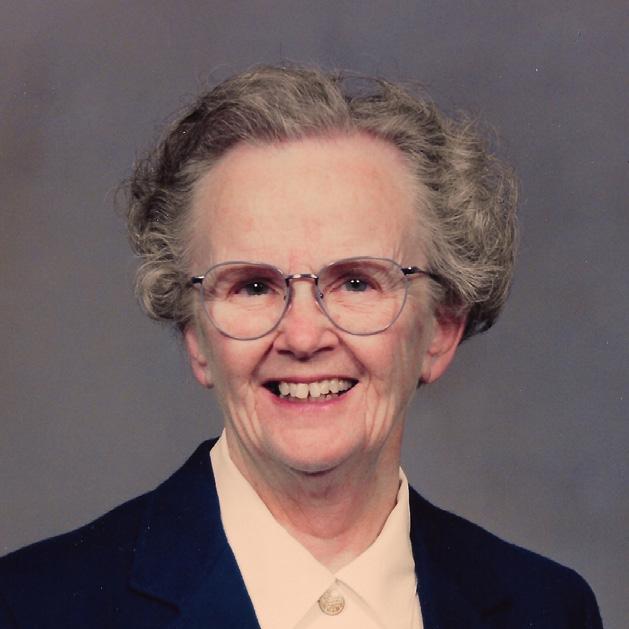
Treasuring the Message
Remembering
the Life of Barbara Bartow
BY TRAVIS HEARNE
rivate and a lover of books, Miss Barbara Bartow was a servant of Christ.
Scribbling on a scrap of paper—as she was accustomed to—she summarized the message of the Bible. The message she would treasure until being called home last year. Now—delighting in the presence of her Lord— she declares the same message:
“The history of the redemption of humanity and the account of a man, Jesus. God’s Son.”
Miss Bartow was an only child. Her family suffered in the Great Depression, but they always prioritized faith in Christ. Her mother was a gifted church organist. Her father was a mill worker. For generations, the Bartow family worshiped at Red Clay Creek Presbyterian Church in Wilmington, Delaware. She avoided fancy dress and preferred a simple life. But Bartow excelled in her studies, especially history. She graduated early from high school as part of the World War
II effort to advance gifted students into the workforce. But her pursuit of knowledge was not quenched. Bartow went on to receive degrees from the Universities of Delaware (BA 1947), Pennsylvania (MA 1951), and the Drexel Institute of Technology (MS 1955). A member of the academic honor society, she was breaking ground in the male dominated world of scholarship. After a career as a research librarian, she retired in 1996. But she didn’t acquiesce. Bartow and her lifelong friend, Jenny Spurgeon, maintained a meticulously catalogued personal library. Jenny and Miss Bartow previously met as librarians at the University of Delaware. They had an instant bond over their shared commitment to Christ. Relocating to Jenny’s hometown, White Pine, Tennessee, they both would end up attending the same church, First Baptist Church Morristown. Miss Bartow’s passion for education and
the gospel will be her legacy. Upon her passing, she left a bequest to the James P. Boyce Continental Library at the Southern Baptist Theological Seminary. Her gift was designated to supply written and digital resources for the study of church history. Initially, she only wanted to provide print materials. But was eventually convinced of the need for digital products. Her gift was valuable at a time when the need for digital resources were at an all-time high. The 2020 COVID pandemic surged Southern’s dependence on technology. Modest, scholarly, and godly, Barbara Bartow’s legacy will be carried on through the students at Boyce and SBTS. As ministers take the gospel to the ends of the earth, they will be indebted to her gracious contribution, and will continue Bartow’s chief aim—proclaiming the message of the redemption of humanity. And exalting Jesus Christ, God’s Son.
SBTS.EDU SOUTHERN SEMINARY SPRING 2021 45 44
P
SUPPORT SUPPORT
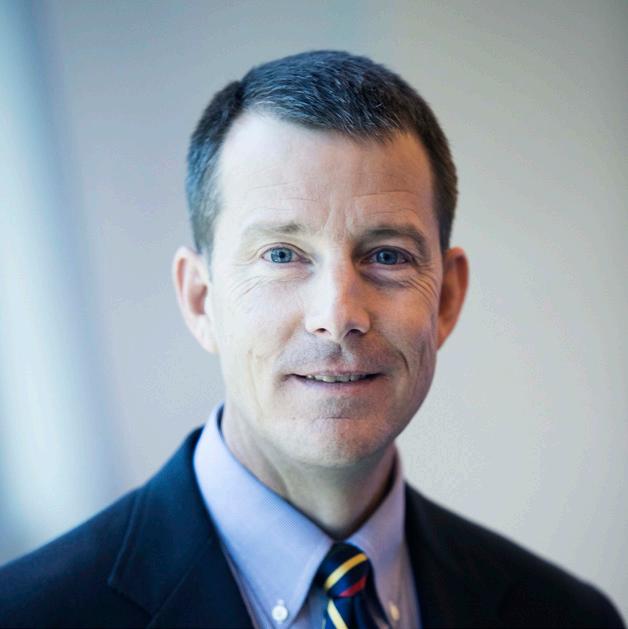
Gratitude for God’s Unchanging Grace in Ever-Changing Times
BY EDWARD HEINZE
Every challenge in a Christian’s life must be met with God-honoring resolve. During this past year we’ve faced our share of challenges in sustaining Southern’s mission, but we’ve remained faithful, steadfast, and engaged in our calling. What is that calling? To equip the students whom God entrusts to us to be biblically faithful pastors, missionaries, and Christian leaders both at home and abroad. Every organization has a bottom-line objective it pursues each year. For some it’s growing profits and maximizing shareholder wealth; for others it’s invention and the development of new technology or a better way. Here at Southern Seminary, graduates are our bottom line. Indeed, we believe the world needs our graduates—eager students trained by our devoted faculty in unchanging truth that pours out of an ancient book authored by God. We truly believe what we sing in our seminary hymn at each commencement:
Soldiers of Christ, in truth arrayed, A world in ruins needs your aid:
A world by sin destroyed and dead; A world for which the Savior bled.
In the economic uncertainty of the past year, we were resolved to guard against a reduction in the pipeline of gospel ambassadors being sent out to advance the cause of Christ. So determined were we to sustain graduate numbers that we implemented a 15 percent tuition reduction for the 2020-21 academic year to help our students stay the course and progress in their training in a lean economy. This resulted in commencement exercises in which we celebrated the sending out of 829 graduates.
It’s hard to imagine an institution reducing its revenue not suffering fiscal harm as a result. But we have a story we are eager to tell, one of God’s provision and protection during these uncertain days. It’s true that we committed ourselves to extreme fiscal
discipline and a reduction of operating expenses, but that wasn’t enough to carry us through the last year.
Truth is, we needed students—and God sent them in record numbers. Over the past academic year, we enrolled more students and sold more class hours than in any previous year in SBTS history.
Truth is, we needed Southern Baptists to continue to support us through generous Cooperative Program giving—and they did. We marvel at the sustained faithfulness of Southern Baptists who have helped us keep tuition rates affordable.
Truth is, we needed the long-standing patrons of Southern Seminary to stand in the gap and help us undergird our students financially—and they were more than generous. With their support we’ve sustained enrollment and graduated the students God has called to ministry in local churches and mission fields around the world.
Every dollar given to the Southern Fund is one less dollar that a student will have to pay in tuition. You play a vital role in referring donors and giving to support the thousands of Southern students that are coming behind them.
Learn more about supporting students at Southern Seminary and Boyce College by visiting DONATE.SBTS.EDU.



46
SUPPORT






















 BY JARED KENNEDY
BY JARED KENNEDY


















































